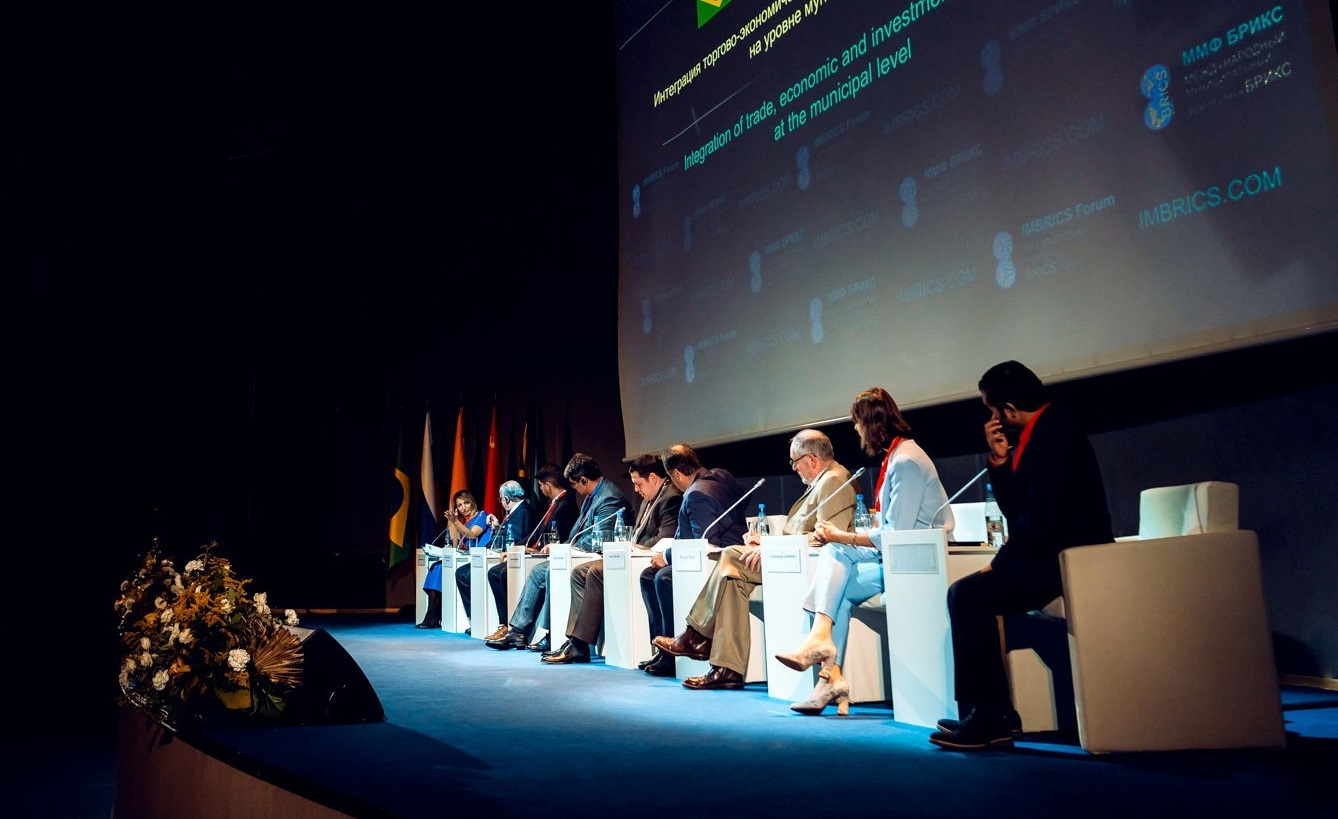Russia through the hidden eye (continuation)
- Thread starter Lalas
- Start date
Lalas
Star
- Joined
- Nov 8, 2022
- Messages
- 2,129
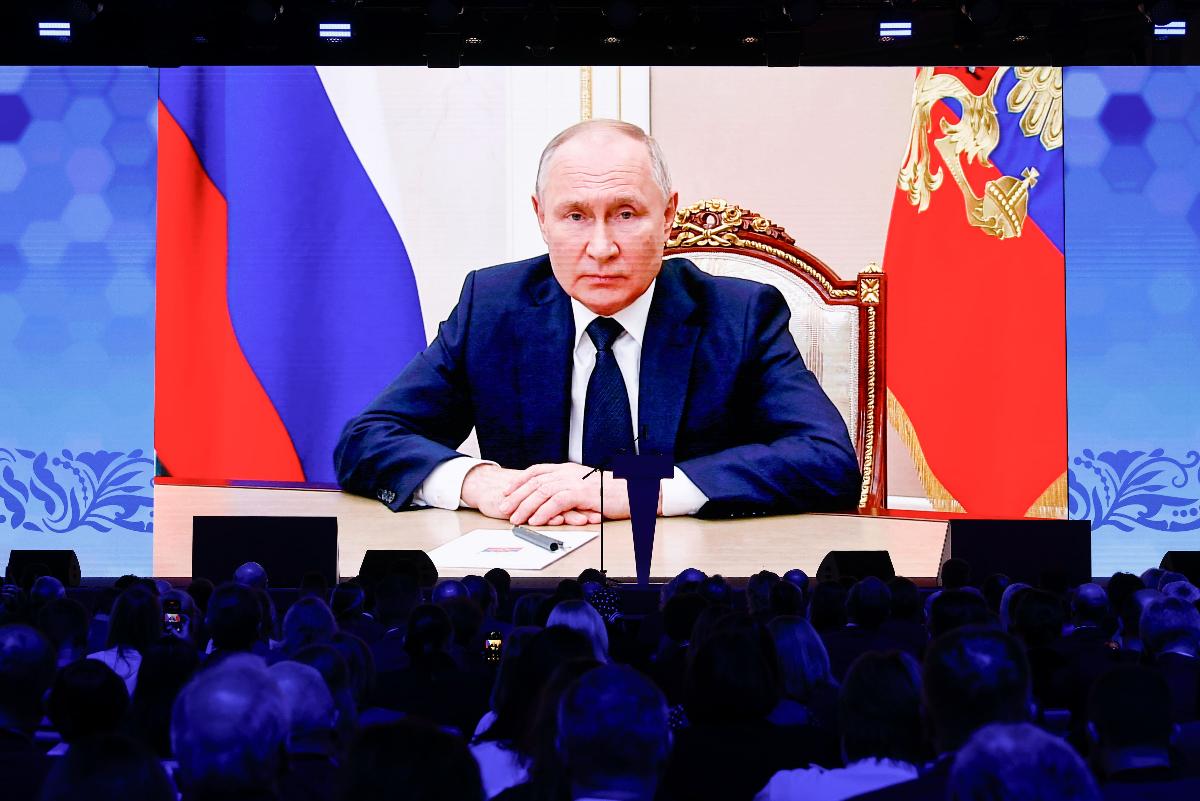
Владимир Путин направил приветствие участникам конгресса «Национальное здравоохранение – 2023»
Владимир Путин направил приветствие участникам конгресса «Национальное здравоохранение – 2023»
Vladimir Putin sent greetings to the participants of the National Healthcare 2023 Congress

...
"I am confident that the dialogue of such high-level professionals will be meaningful, interesting and productive, and will contribute to a fruitful search for answers to the many challenges that our and global healthcare are facing today. These include the strengthening of medical science, the introduction of digital technologies, new effective methods of treating dangerous diseases and, of course, ensuring infection safety," Vladimir Putin said. He also noted that it is important to pay special attention to solving personnel problems, improving the level and quality of medical education.
...
As the head of state emphasized, "the well-coordinated and responsible work of the Government, the Ministry of Healthcare, regional authorities, and every medical worker has made it possible to achieve decent results, the first of which, of course, is a record life expectancy for Russia: by the end of the year, it will be about 74 years."
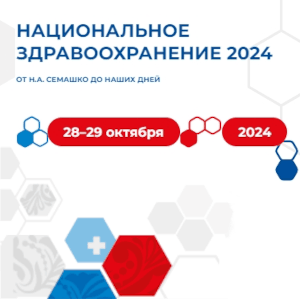
Национальное здравоохранение 2024
Цель Конгресса – в формате открытого диалога обсудить актуальные вопросы организации и экономики здравоохранения, представить ключевые достижения и разработки, обменяться опытом реализации успешных проектов.
On December 1–2, 2023, the 2nd National Congress with international participation "NATIONAL HEALTHCARE – 2023" will be held in Moscow. The event is organized by the Ministry of Health of the Russian Federation and the Roscongress Foundation. The organizational partner of the event is the Central Research Institute of Healthcare Organization and Informatization of the Ministry of Health of the Russian Federation. The congress will be held as part of the Russia International Exhibition and Forum at VDNH.
The purpose of the Congress is to discuss topical issues of the organization and economics of healthcare in the format of an open dialogue, present key achievements and developments, and exchange experience in the implementation of successful projects. Based on the results of the work, solutions will be developed for the effective development of the healthcare system, focused on achieving national goals and priorities in the field of public health.

01 December
...
INNOVATIONS IN HEALTHCARE: MEASURES TO SUPPORT THE DEVELOPMENT OF INNOVATIONS AND OPPORTUNITIES FOR ACCELERATED IMPLEMENTATION ON THE EXAMPLE OF THE EXPERIENCE OF RUSSIA AND CHINA
14:15–15:45, VDNH, Pavilion 75, Hall 2
The degree of development of innovation and healthcare is one of the key indicators of Russia's competitiveness. The National Security Strategy provides for the introduction of state incentives and the encouragement of private investment in innovation and the accelerated implementation of its results as a factor in ensuring sustainable growth of the Russian economy. The Russian Federation has a significant potential in the field of fundamental and applied research, an extensive system of scientific and educational centers, and an advantage in a number of technologies. One of the tasks of achieving the goals of scientific and technological development is, among other things, the development of tools for the protection of intellectual property and the expansion of the practice of enforcement of patent legislation as a condition for increasing the interest of Russian business in the development of innovative activities. The development and implementation of new medical technologies and medicines is also at the heart of the strategy for the development of healthcare in Russia, including the creation of centralized digital platforms for diagnosing diseases using artificial intelligence, the introduction of modern molecular genetic methods for forecasting, diagnosing and monitoring diseases.
In addition, it is important to note that this is not the case. The strategy of supporting the development of innovation is also at the heart of the success of the People's Republic of China in recent decades in transforming the economy from a global producer of knowledge-intensive technological goods to the status of a developer and pioneer in many fields of science. A key feature of the approach of Chinese innovative developers is the focus on the applied use of new technologies, wide mobility and speed of decision-making, significant and diversified state support for innovators, as well as a focus on the implementation of new technologies equally in local and foreign markets.
What measures are most effective and necessary to support the development and implementation of innovations? What regulatory conditions are needed to create the most conducive innovation ecosystem? What barriers to innovation have been encountered and still need to be addressed? How can we accelerate innovation in healthcare? How to develop international recognition in the context of cross-country competition for human capital, sales markets and scientific leadership?
BREAKTHROUGH HEALTHCARE TECHNOLOGIES IN THE RUSSIAN FEDERATION
14:15–15:45
VDNH, Pavilion 75, Congress Hall
Innovation is a catalyst for progress in medicine. During the session, well-known Russian scientists, developers, and surgeons will share breakthrough achievements in the field of genetics, in the treatment of autoimmune and oncological diseases, as well as the development of vaccines and immunobiological drugs, and other areas that are relevant today.
How is healthcare innovation becoming a key enabler in providing a high-tech and personalized patient experience? How are innovations changing the face of today's medicine? How can these changes be harmoniously integrated into practical health care? What are the prospects for the further technological development of Russian healthcare?
...
"WOMEN FOR A HEALTHY LIFE" Eurasian Women's Forum Lounge
14:15–15:45
VDNH, Pavilion 75, Hall of Private Business Events, 2nd floor
The relevance of the agenda for preserving the health of the nation, the development of health-saving practices, as well as pharmaceutical innovations is dictated by the challenges of our time and the increased human need to improve the quality of life. Since more than 83% of representatives of the medical and pharmaceutical industries are women, they play a key role in the dynamically developing healthcare system of Russia, introducing and popularizing the latest technologies in the field of health care. With the participation of the Council of the Eurasian Women's Forum, global initiatives and projects aimed at strengthening prevention and health protection, such as "Preventive Shield", "Health Train", "Women's Health - Well-Being of the Nation", "Women for a Healthy Society", "Women in the Pharmaceutical Industry" are being successfully implemented in our country. However, for the sustainable development of the health system, it is necessary to increase the active and full participation of women in all areas of health care and in the socio-economic life of the country.
What other initiatives need to be promoted under the auspices of the EAWF Council to achieve the well-being of the nation and the development of human potential as a factor of sustainable socio-economic development? How do women contribute to the development of science, the medical and pharmaceutical industries today? What role do women play in the development of a modern human-centered health care system?
...
THE ROLE OF MEDIA IN HEALTH CARE
14:15–15:45
VDNH, Pavilion 55, Hall 2
The COVID-19 pandemic has set ambitious challenges for the state, including those related to the prompt notification of people about treatment and prevention methods, and has also demonstrated the importance of an effective communication strategy between the population and health professionals. The information channels and practices created on the basis of this experience are still successfully used today to publish information on medical examination and prevention of non-communicable diseases. However, since the peak of the pandemic, the topic of health has become less of a priority for the media, while the need for large-scale coverage of health issues remains. In addition to traditional media, including television, radio and print media, new media are gaining more and more importance and trust among people: social networks, blog platforms, telegram channels. Thus, the effectiveness of interaction with various audiences directly depends on a thorough analysis and selection of media resources, the quality of content about medicine and health, and methods of its broadcasting.
What media resources are effective and promising platforms for promoting a healthy lifestyle, prevention programs and achievements in medical science? What formats of communication with a wide audience are the most effective in the field of health care? What strategy of interaction between healthcare and the media is relevant today? How can the healthcare sector be singled out as a priority for the media?
...
MEDICAL SCIENCE AT THE FOREFRONT OF THE COUNTRY'S TECHNOLOGICAL SOVEREIGNTY
16:15–17:45
VDNH, Pavilion 75, Hall of Private Business Events, 2nd floor
The rapid development of medical science in Russia contributes to significant achievements in the medical and pharmaceutical industries, the improvement of genomic technologies, the production of innovative medicines, and the creation of unparalleled medical technologies and equipment.
[...]
How can we overcome the challenges facing medical science on the way to achieving Russia's full technological sovereignty in the field of healthcare? Which areas of development of medical science should be considered as the most priority and promising? How do developments in the field of AI affect the development of the healthcare system? What incentives from the state are needed at the moment for a deep reorientation of the scientific community, the medical and pharmaceutical industries, to ensure technological sovereignty in the healthcare sector?

01.12.2023
16:15–17:45
VDNH, 55 pavilion, Small hall 3
The COVID-19 pandemic has become a vivid example of why preventing infections, with the maximum consolidation of the efforts of medical services, biotechnology companies, and the public, has become such a strategically important focus of Russia’s development. The pandemic resulted in the rapid development and registration of diagnostic systems and vaccines that saved numerous human lives. In an effort to increase immunization and maintain the working capacity of the population, a plan was approved at the federal level to implement a strategy to develop preventive immunization against infectious diseases. The creation of new tools to monitor the epidemiological situation, improvements to primary healthcare, updates to the national calendar of preventive vaccinations, and the establishment of a full cycle of vaccine production have all had a positive impact on life expectancy and strengthening collective immunity, as well as increasing the economic efficiency of the state.
What tools does Russia have today to monitor the epidemiological situation and prevent emergencies as a result of infectious diseases? How can primary healthcare mechanisms be improved to effectively vaccinate the population? How can we overcome challenges associated with preventing infections among the country’s residents? What funding and production tools do companies need to develop to help accelerate preventive immunization in the face of a global biological threat?"
......
Russia through the hidden eye
https://rigf.ru/en/press/?v=&id=126&year=2022 PARTICIPANTS OF RIGF 2022 WILL CONTRIBUTE TO THE DEVELOPMENT OF INTERNATIONAL INTERNET REGULATION 28.09.2022 The work of the 12th Russian Internet Governance Forum began. .. Deputy Prime Minister of the Russian Federation Dmitry Chernyshenko welcomed...
Registered Russian-made vaccines have been approved for vaccination. In January 2021, Mikhail Murashko set a goal to vaccinate 60% of the adult population of Russia, or 68-69 million people, announcing plans to reach this level during the first half of the year. In fact, as of January 28, 2022, according to official data, approximately 83.7 million vaccinations with the first component and approximately 79.3 million complete vaccination courses were carried out in Russia; these figures include both primary and repeated vaccination. Portal gogov.ru on the same date, it reports smaller figures (76.4 million and 69.6 million, respectively), which do not include re-vaccinated.”
...
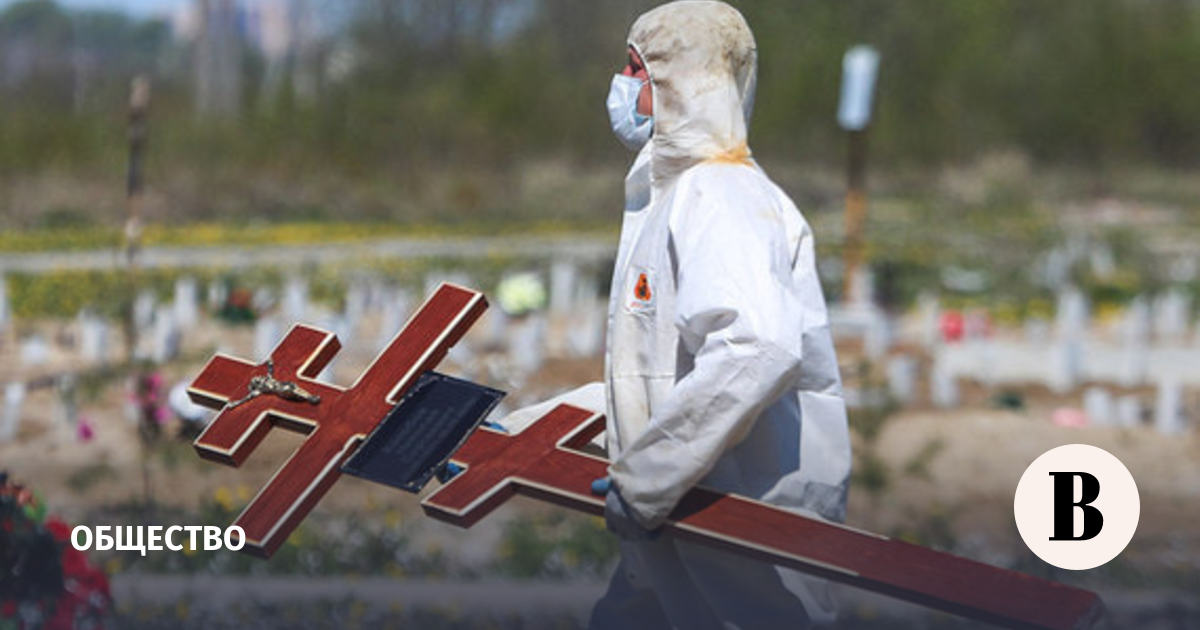
Смертность в России за последний год стала рекордной со времен войны
В период с декабря 2020-го по ноябрь 2021 года смертность превысила 2,4 млн человек, а убыль населения приблизилась к 1 млн россиян
The death rate in Russia over the past year has become a record since the war
In the period from December 2020 to November 2021, the death rate exceeded 2.4 million people, and the population decline approached 1 million Russians
Excess mortality in December 2020 – November 2021 could exceed 622,000 people. […] This is the worst period since 1945. The natural decline of the population, excluding migration, has crossed the mark of 990,000 people over the past year[…]The situation was more deplorable only during the Great Patriotic War of 1941-1945. […] If we take the mortality rate of 2019 as a conditional norm, then it is higher than this norm from October 2020 to September 2021. about 607,000 people died, and from last December to November – at least 622,000 people.
…
The total population decline in Russia from December 2020 to November 2021 exceeds 990,000 people. Population losses (in excess of the 2019 loss) may amount to about 665,000 people.
Until 2019, the mortality rate was decreasing. For example, in 2015 it was 13.0 per 1000 people, and in 2019 it was 12.3, according to Rosstat data. This year it has already grown to 16.8 ppm.”
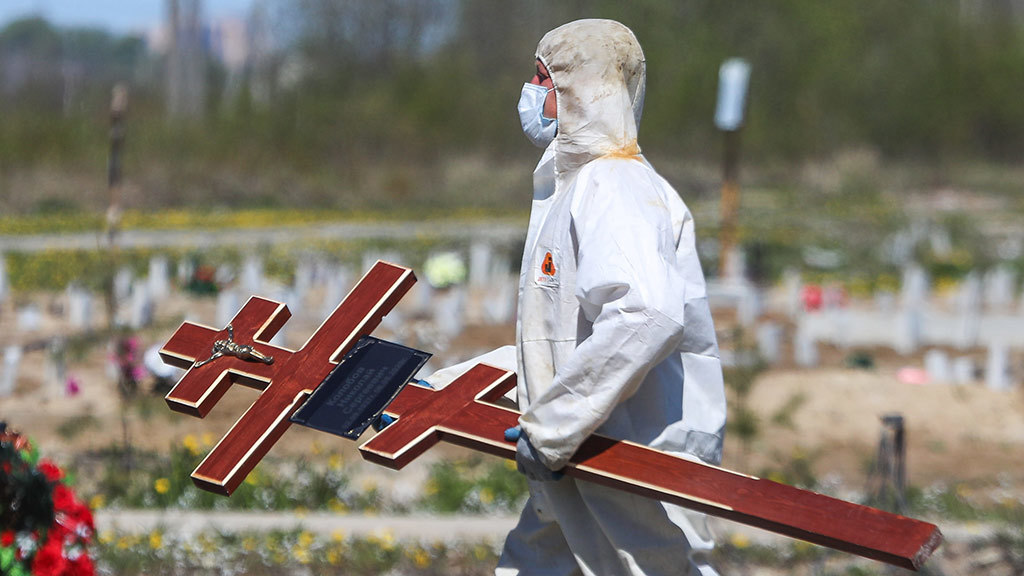
Last edited:
Lalas
Star
- Joined
- Nov 8, 2022
- Messages
- 2,129
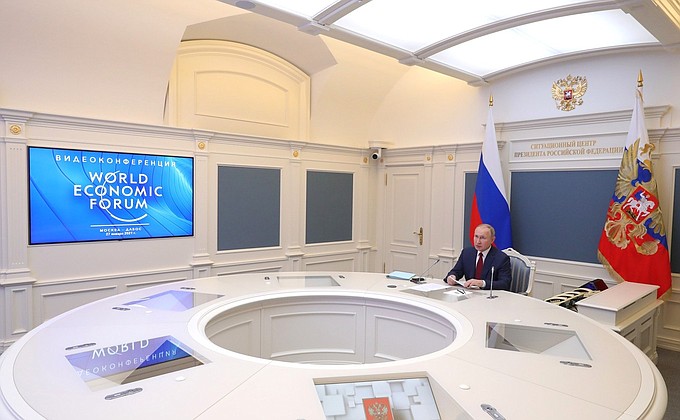
Session of Davos Agenda 2021 online forum
Vladimir Putin spoke at the session of the Davos Agenda 2021 online forum organised by the World Economic Forum (WEF).
Vladimir Putin spoke at the session of the Davos Agenda 2021 online forum organised by the World Economic Forum (WEF).
January 27, 2021
The main focus of the forum is the discussion of the new global situation arising from the novel coronavirus pandemic.
* * *
World Economic Forum Founder and Executive Chairman Klaus Schwab:
Mr President, welcome to the Davos Agenda Week.
Russia is an important global power, and there’s a long-standing tradition of Russia’s participation in the World Economic Forum. At this moment in history, where the world has a unique and short window of opportunity to move from an age of confrontation to an age of cooperation, the ability to hear your voice, the voice of the President of the Russian Federation, is essential. Even and especially in times characterised by differences, disputes and protests, constructive and honest dialogue to address our common challenges is better than isolation and polarisation.
Yesterday, your phone exchange with President Biden and the agreement to extend the New START nuclear arms treaty in principle, I think, was a very promising sign in this direction.
COVID-19, Mr President, has shown our global vulnerability and interconnectivity, and, like any other country, Russia will certainly also be affected, and your economic development and prospects for international cooperation, of course, are of interest to all of us.
Mr President, we are keen to hear from your perspective and from that of Russia, how you see the situation developing in the third decade of the 21st century and what should be done to ensure that people everywhere find peace and prosperity.
Mr President, the world is waiting to hear from you.
President of Russia Vladimir Putin:
Mr Schwab, dear Klaus,
Colleagues,
I have been to Davos many times, attending the events organised by Mr Schwab, even back in the 1990s. Klaus [Schwab] just recalled that we met in 1992. Indeed, during my time in St Petersburg, I visited this important forum many times. I would like to thank you for this opportunity today to convey my point of view to the expert community that gathers at this world-renowned platform thanks to the efforts of Mr Schwab.
First of all, ladies and gentlemen, I would like to greet all the World Economic Forum participants.
It is gratifying that this year, despite the pandemic, despite all the restrictions, the forum is still continuing its work. Although it is limited to online participation, the forum is taking place anyway, providing an opportunity for participants to exchange their assessments and forecasts during an open and free discussion, partially compensating for the increasing lack of in-person meetings between leaders of states, representatives of international business and the public in recent months. All this is very important now, when we have so many difficult questions to answer.
The current forum is the first one in the beginning of the third decade of the 21st century and, naturally, the majority of its topics are devoted to the profound changes that are taking place in the world.
Indeed, it is difficult to overlook the fundamental changes in the global economy, politics, social life and technology. The coronavirus pandemic, which Klaus just mentioned, which became a serious challenge for humankind, only spurred and accelerated the structural changes, the conditions for which had been created long ago. The pandemic has exacerbated the problems and imbalances that built up in the world before. There is every reason to believe that differences are likely to grow stronger. These trends may appear practically in all areas.
...
Hopes that it will be possible to reboot the old growth model are connected with rapid technological development. Indeed, during the past 20 years we have created a foundation for the so-called Fourth Industrial Revolution based on the wide use of AI and automation and robotics. The coronavirus pandemic has greatly accelerated such projects and their implementation.
...
So, the key question today is how to build a programme of actions in order to not only quickly restore the global and national economies affected by the pandemic, but to ensure that this recovery is sustainable in the long run, relies on a high-quality structure and helps overcome the burden of social imbalances.
...
[...]Our priorities revolve around people, their families, and they aim to ensure demographic development, to protect the people, to improve their well-being and to protect their health. We are now working to create favourable conditions for worthy and cost-effective work and successful entrepreneurship and to ensure digital transformation as the foundation of a high-tech future for the entire country, rather than that of a narrow group of companies.
...
We are open to the broadest international cooperation, while achieving our national goals, and we are confident that cooperation on matters of the global socioeconomic agenda would have a positive influence on the overall atmosphere in global affairs, and that interdependence in addressing acute current problems would also increase mutual trust which is particularly important and particularly topical today.
Obviously, the era linked with attempts to build a centralised and unipolar world order has ended. To be honest, this era did not even begin. A mere attempt was made in this direction, but this, too, is now history. The essence of this monopoly ran counter to our civilisation’s cultural and historical diversity.
The reality is such that really different development centres with their distinctive models, political systems and public institutions have taken shape in the world. Today, it is very important to create mechanisms for harmonising their interests to prevent the diversity and natural competition of the development poles from triggering anarchy and a series of protracted conflicts.
...
At the same time there are certainly problems that concern every state without exception. One example is cooperation in studying and countering the coronavirus infection. As you know, several strains of this dangerous virus have emerged. The international community must create conditions for cooperation between scientists and other specialists to understand how and why coronavirus mutations occur, as well as the difference between the various strains.
Of course, we need to coordinate the efforts of the entire world, as the UN Secretary-General suggests and as we urged recently at the G20 summit. It is essential to join and coordinate the efforts of the world in countering the spread of the virus and making the much needed vaccines more accessible. We need to help the countries that need support, including the African nations. I am referring to expanding the scale of testing and vaccinations.
We see that mass vaccination is accessible today, primarily to people in the developed countries. Meanwhile, millions of people in the world are deprived even of the hope for this protection. In practice, such inequality could create a common threat because this is well known and has been said many times that it will drag out the epidemic and uncontrolled hotbeds will continue. The epidemic has no borders.
There are no borders for infections or pandemics. Therefore, we must learn the lessons from the current situation and suggest measures aimed at improving the monitoring of the emergence of such diseases and the development of such cases in the world.
Another important area that requires coordination, in fact, the coordination of the efforts of the entire international community, is to preserve the climate and nature of our planet. I will not say anything new in this respect.
Only together can we achieve progress in resolving such critical problems as global warming, the reduction of forestlands, the loss of biodiversity, the increase in waste, the pollution of the ocean with plastic and so on, and find an optimal balance between economic development and the preservation of the environment for the current and future generations."
"Hopes that it will be possible to reboot the old growth model are connected with rapid technological development. Indeed, during the past 20 years we have created a foundation for the so-called Fourth Industrial Revolution based on the wide use of AI and automation and robotics. The coronavirus pandemic has greatly accelerated such projects and their implementation.
...
[...]Our priorities revolve around people, their families, and they aim to ensure demographic development, to protect the people, to improve their well-being and to protect their health. We are now working to create favourable conditions for worthy and cost-effective work and successful entrepreneurship and to ensure digital transformation as the foundation of a high-tech future for the entire country, rather than that of a narrow group of companies."
...

Мурашко заявил об обязательном переходе на электронные медкарты с 2024 года
Министр здравоохранения РФ отметил, что речь идет об электронной медицинской карте "с формированием полей, требований к региональным медицинским информационным системам
Murashko announced a mandatory transition to electronic medical records from 2024
The Minister of Health of the Russian Federation noted that we are talking about an electronic medical record "with the formation of fields, requirements for regional medical information systems
MOSCOW, December 2, 2023. /TASS/. The transition to electronic medical records in Russia will become mandatory from next year, said the Minister of Health of the Russian Federation Mikhail Murashko.
"Starting next year, we will present this (transition to electronic medical records - approx. TASS) to the executive authorities as a prerequisite, because otherwise we will simply not be able to collect data arrays. <... >The rejection of paper is a financial, intellectual tool, continuity, including between levels of medical care, and patient support," he said at the National Health Care Congress.
Murashko explained that we are talking about the transition to an electronic medical record "with the formation of fields, requirements for regional medical information systems."
"Overall, the future of primary health care is, of course, accessibility for the population and the rejection of paper. <... >We do not encroach on anyone's authority, we do not encroach on the doctor's handwriting in any way, excuse me, please, it has already proven itself in jokes. It's not a question of reading a doctor's handwriting and digitizing it. And to form a data resource that allows us to transform healthcare," the minister added."
Last edited:
Lalas
Star
- Joined
- Nov 8, 2022
- Messages
- 2,129

Инвестиционный форум ВТБ "Россия зовет!" заговорит на китайском языке
Глобальный инвестиционный форум ВТБ "Россия зовет!" (0+) пройдет 7 и 8 декабря в Центре международной торговли в Москве. Впервые со времен пандемии коронавируса мероприятие состоится в офлайн-форма...
VTB Global Investment Forum "Russia Calling!" (0+) will be held on December 7 and 8 at the World Trade Center in Moscow. For the first time since the coronavirus pandemic, the event will be held offline, and for the first time it will be held in Chinese. Details - in the TASS material
Participants will discuss the development of the Russian economy, emerging challenges and growth points, as well as ways to strengthen external relations. Traditionally, Russian President Vladimir Putin will take part in the event.
...
The main theme of the 14th forum "Russia Calling!" is "Life without Globalization: Uniting Sovereign Economies". It is expected that on the first day, representatives of the government and leading Russian and international companies will discuss the trajectory of the Russian economy and the most effective strategies for strengthening the financial sovereignty of states in the current realities, as well as ways to develop foreign relations. For the first time, simultaneous translation of sessions and public speeches into Chinese will be carried out especially for participants from China.
"It is obvious that despite the radical changes, the ties have remained, and most importantly, the desire of Russia and Russian business to interact with the outside world remained. The task of attracting foreign capital is still relevant today: the domestic market has become more attractive to investors from friendly countries due to the transformation of demand, partnerships, and payment infrastructure. A number of Western companies are also interested in it," said the head of VTB's corporate and investment business unit.
...
"In the context of a change in the economic paradigm, it is especially important to consolidate the active part of society - entrepreneurs. Today, the economy is focused on the introduction of breakthrough technologies, the implementation of infrastructure projects, and the creation of new financial instruments. Many of these tasks can be solved effectively only in conditions of cooperation. And this is no longer about globalization, this is about partnerships and mutual investments. At what stage we are now, what risks and opportunities exist on this path, where to look for incentives for transformation - we will try to answer these questions at the forum "Russia Calling!"," said Andrey Kostin, President and Chairman of the Management Board of VTB Bank."

РФПИ выступил за создание стандарта БРИКС сертификации карбоновых проектов
Глава фонда Кирилл Дмитриев отметил, что Россия как председатель БРИКС в 2024 году сможет продвинуть и развить климатическую повестку
RDIF called for the creation of a BRICS standard for certification of carbon projects
The head of the fund, Kirill Dmitriev, noted that Russia, as the chair of BRICS, will be able to promote and develop the climate agenda in 2024
MOSCOW, December 5, 2023. /TASS/. The creation of a BRICS standard for the certification of carbon projects aimed at reducing carbon gas emissions will contribute to the development of the carbon market, including the mutual recognition of countries with their carbon credits. This was announced to journalists by Kirill Dmitriev, CEO of the Russian Direct Investment Fund (RDIF). The conference call is dedicated to the participation of the head of RDIF in the meeting of the UN Framework Convention on Climate Change (COP28).
"Within the framework of various restrictions, Russia was practically blocked from two systems of standardization of carbon credits. There are two systems - Verified Carbon Standard Program and Gold Standard, they have suspended their activities in the Russian Federation. We believe that it is necessary to create a BRICS standard, a certification system for carbon projects within the framework of BRICS," he said, adding that the process of discussing the initiative is already underway with some players.
Dmitriev noted that Russia, as the chair of BRICS, will be able to promote and develop the climate agenda next year. "This market [for carbon regulation] is just emerging. We believe that BRICS may well be a leader in the implementation of the market, Russia, as the BRICS chairman, will be able to promote and develop the climate agenda next year," he said.
Speaking about RDIF's new initiatives in the implementation of natural and climate projects, Dmitriev stressed that within the framework of BRICS, RDIF will propose projects that will make it possible to invest significant funds in natural projects to absorb carbon dioxide. "We will work on the standardization of such projects. In this, we see a great future not only for Russia, which can use its natural resources, but also for other BRICS countries," he added.
The head of RDIF noted that natural and climatic projects and solutions can provide more than 40% of the cost-effective measures needed by 2030 to meet the goals and objectives of the Paris Agreement. "Such solutions for the conservation and renewal of natural resources, as a rule, are 10-20 times cheaper than technological industrial solutions for capturing CO2 emissions, which is extremely important for RDIF when analyzing investment projects," Dmitriev said."

Russian Direct Investment Fund
RDIF brings together the best Russian and international technologies in the fight against COVID-19 | Russian Direct Investment Fund
In record time, RDIF has become the leader in key areas of the fight against coronavirus:
Diagnostics: one of the most accurate rapid mobile test systems in the EMG world
Treatment: Russia's first registered COVID-19 drug Avifavir
Vaccines: the world's first registered vaccine Sputnik V and a single-component vaccine Sputnik Light
Sputnik V, a vaccine against COVID-19 developed by the Gamaleya Research Centre, became the world’s first registered vaccine against COVID-19. The Sputnik V vaccine is based on a safe and well-studied human adenovirus vector platform.
Guided by the orders of the Russian President, the RDIF team has worked to organise the production of Sputnik V and promote it in foreign markets. "
Last edited:
No I was laughing at the thought there are moderators here. It takes part of a week for actual trolls to be booted off which is funny at times. There's a vocal lyric which is fitting, "We are on our own..." Part of me is glad this space is like the internet of the 90's- somewhat free.@DavidSon , what are you laughing at me?
You're laughing at me for having a problem, aren't you?
Canadian solidarity...
All Canadians are like that.....
Lalas
Star
- Joined
- Nov 8, 2022
- Messages
- 2,129
I don't know which trolls you kicked out, but some trolls are more stubborn than others...No I was laughing at the thought there are moderators here. It takes part of a week for actual trolls to be booted off which is funny at times. There's a vocal lyric which is fitting, "We are on our own..." Part of me is glad this space is like the internet of the 90's- somewhat free.
Lalas
Star
- Joined
- Nov 8, 2022
- Messages
- 2,129
International Exhibition and Forum "Russia" 2023
 www.youtube.com
www.youtube.com


 www.ridus.ru
The BRICS Cloud City Forum in Moscow was opened by Nobel laureate Muhammad Yunus
www.ridus.ru
The BRICS Cloud City Forum in Moscow was opened by Nobel laureate Muhammad Yunus
August 28, 2023
On the first day of the BRICS Cloud City International Innovation Forum, leading international experts discussed promising technologies designed to make the everyday life of a modern city dweller more comfortable and safe. This topic was discussed in detail by the participants of the plenary session "Cloud Man. Technology as a New Superpower?" — speakers from India and the Philippines, as well as leading Russian experts in the field of VR, AR, and neural networks. In total, guests from 30 countries took part in the forum.
The central topic of the discussion within the framework of the session was increasing the availability of modern benefits of civilization for all mankind. The 2006 Nobel Peace Prize laureate, banker, professor of economics from Bangladesh (India) Muhammad Yunus is confident that artificial intelligence can provide significant assistance to humanity in the fight against poverty.
Although progress today allows city dwellers to reduce their movements in space as much as possible, one of the key tasks of advanced technologies is to make individuals and society as a whole more mobile.
"Moscow is one of the best cities in the world in terms of development, digitalization, and services, because I can't get 24/7 service anywhere else. Even if we are talking about some specific things. It's not just about ordering food, a taxi — I, for example, recently issued OSAGO at three o'clock in the morning, it turns out that this is also affordable,"
— said Wylsacom technoblogger Valentin Petukhov.
He also stressed that the telephone today has become a full-fledged participant in urban life. Without it, it will be difficult to order a taxi or get on the subway, you will have to wait for a bus at the bus stop for a long time. At the same time, "holding the screen in your hands is not entirely comfortable and safe." Therefore, a new technological revolution awaits us.
"We are in a kind of middle position, from a state when there was practically nothing to the moment when some interesting features of our life, described by science fiction writers, will become a reality. Already, some of their forecasts have come true, some of them, accordingly, have gone far ahead. And if we talk about Moscow as a gadget, I see that it is a very interesting, multifunctional, multifaceted device that is constantly evolving,"
Wylsacom concluded.
The central topic of the second day of the forum will be the economy. As part of the session "Economy in the Cloud. Technological Business and the Future of Cities", Viktor Vekselberg, representative of the Board of Directors of Renova Group, Suresh Prabhu, Chairman of the Committee on New National Cooperation Policy of the Ministry of Cooperation of India, and Mikhail Oseevsky, President of Rostelecom, will discuss how the digital revolution is changing the economy and in what areas the most interesting changes are taking place, what opportunities investors and companies see in the urban technology market, and also analyze how business ensures digitalization Cities."

~~
International Exhibition and Forum "Russia" 2023
~~

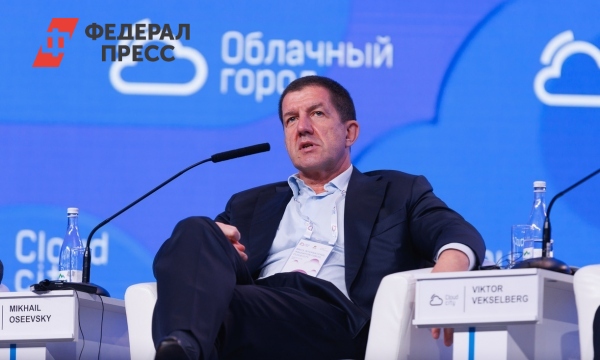
 fedpress.ru
August 28, 2023
fedpress.ru
August 28, 2023
At the Cloud City forum, the formula of happiness for residents of the metropolis was revealed
Mikhail Oseevsky spoke about the role of AI in healthcare
MOSCOW, August 28, FederalPress. On the second day of the BRICS Cloud City International Forum, leading Russian and international experts discussed the digital revolution and its impact on the economy. At the plenary session "Economy in the Cloud. Technological Business and the Future of Cities", the speakers answered key questions of the industry: how business today ensures the digitalization of cities and what opportunities investors and companies see in the urban technology market.
The plenary session of the second day of the forum was opened by Viktor Vekselberg, Chairman of the Board of Renova Group of Companies. He noted the importance of predictive analytics in the utilities sector, calling it the cornerstone of the digital transformation of modern megacities.
Cities today are a marketplace of opportunities for technology companies and startups to create and implement new products and services.
Local authorities support domestic producers and actively invest in digital projects. According to Eduard Lysenko, Minister of the Moscow Government, in recent years, the capital has never reduced investments in the technological development of the city and has always contributed to advanced solutions in the urban environment.
"Together with the industry, we must constantly look for something new and implement it responsibly. From our point of view, this is what a city that is ready and wants development does," Lysenko said.
The topic was supported by Rostelecom President Mikhail Oseevsky, who said that one of the most important and difficult tasks today is the use of machine learning and artificial intelligence technologies in the healthcare sector.
"We've already learned how to gather a very diverse amount of information about each of us. This data is stored in the form of images, analyses, and case histories. Today, many teams are working to form programs that will help doctors analyze the vast amount of information to suggest which treatment options are right for a person. Such an AI assistant is the future of medicine," the speaker emphasized.
The second day of the BRICS Cloud City International Forum is dedicated to the topic of economics. More than 4000 people from 30 countries take part in the event. As part of the business program, consisting of 50 thematic sessions, more than 70 foreign and 130 Russian-speaking speakers will speak. The forum will be held from 27 to 29 August at the Zaryadye Concert Hall."
~~
International Exhibition and Forum "Russia" 2023
 www.youtube.com
www.youtube.com
~~
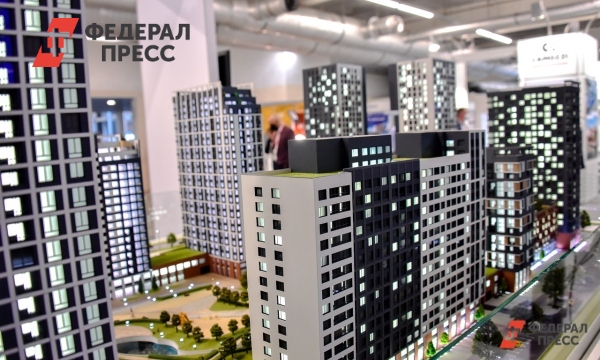
 fedpress.ru
"...
fedpress.ru
"...
On the last day of the forum, August 29, Emir Kusturica will give Konstantin Bogomolov an hour-long interview, during which they will discuss the future of megacities and their culture."


 cloudcityconf.com
cloudcityconf.com
"Earlier, FederalPress wrote that the BRICS member states oppose any hegemony and exclusivity of countries."

 en.kremlin.ru
Session of Davos Agenda 2021 online forum
en.kremlin.ru
Session of Davos Agenda 2021 online forum
..
World Economic Forum Founder and Executive Chairman Klaus Schwab:
Mr President, welcome to the Davos Agenda Week.
..
Mr President, the world is waiting to hear from you.
...
President of Russia Vladimir Putin:
Mr Schwab, dear Klaus,
...
"Hopes that it will be possible to reboot the old growth model are connected with rapid technological development. Indeed, during the past 20 years we have created a foundation for the so-called Fourth Industrial Revolution based on the wide use of AI and automation and robotics. The coronavirus pandemic has greatly accelerated such projects and their implementation."
~~
International Exhibition and Forum "Russia" 2023
 www.youtube.com
www.youtube.com
- YouTube
Enjoy the videos and music you love, upload original content, and share it all with friends, family, and the world on YouTube.


Форум БРИКС «Облачный город» в Москве открыл нобелевский лауреат Мухаммад Юнус
Ведущие международные эксперты обсудили перспективные технологии.
August 28, 2023
On the first day of the BRICS Cloud City International Innovation Forum, leading international experts discussed promising technologies designed to make the everyday life of a modern city dweller more comfortable and safe. This topic was discussed in detail by the participants of the plenary session "Cloud Man. Technology as a New Superpower?" — speakers from India and the Philippines, as well as leading Russian experts in the field of VR, AR, and neural networks. In total, guests from 30 countries took part in the forum.
The central topic of the discussion within the framework of the session was increasing the availability of modern benefits of civilization for all mankind. The 2006 Nobel Peace Prize laureate, banker, professor of economics from Bangladesh (India) Muhammad Yunus is confident that artificial intelligence can provide significant assistance to humanity in the fight against poverty.
Although progress today allows city dwellers to reduce their movements in space as much as possible, one of the key tasks of advanced technologies is to make individuals and society as a whole more mobile.
"Moscow is one of the best cities in the world in terms of development, digitalization, and services, because I can't get 24/7 service anywhere else. Even if we are talking about some specific things. It's not just about ordering food, a taxi — I, for example, recently issued OSAGO at three o'clock in the morning, it turns out that this is also affordable,"
— said Wylsacom technoblogger Valentin Petukhov.
He also stressed that the telephone today has become a full-fledged participant in urban life. Without it, it will be difficult to order a taxi or get on the subway, you will have to wait for a bus at the bus stop for a long time. At the same time, "holding the screen in your hands is not entirely comfortable and safe." Therefore, a new technological revolution awaits us.
"We are in a kind of middle position, from a state when there was practically nothing to the moment when some interesting features of our life, described by science fiction writers, will become a reality. Already, some of their forecasts have come true, some of them, accordingly, have gone far ahead. And if we talk about Moscow as a gadget, I see that it is a very interesting, multifunctional, multifaceted device that is constantly evolving,"
Wylsacom concluded.
The central topic of the second day of the forum will be the economy. As part of the session "Economy in the Cloud. Technological Business and the Future of Cities", Viktor Vekselberg, representative of the Board of Directors of Renova Group, Suresh Prabhu, Chairman of the Committee on New National Cooperation Policy of the Ministry of Cooperation of India, and Mikhail Oseevsky, President of Rostelecom, will discuss how the digital revolution is changing the economy and in what areas the most interesting changes are taking place, what opportunities investors and companies see in the urban technology market, and also analyze how business ensures digitalization Cities."

~~
International Exhibition and Forum "Russia" 2023
~~


На форуме «Облачный город» раскрыли формулу счастья для жителей мегаполиса | Москва | ФедералПресс
Во второй день международного форума БРИКС Облачный город ведущие российские и международные эксперты обсудили цифровую революцию и ее влияние на экономику, читайте на ФедералПресс.
At the Cloud City forum, the formula of happiness for residents of the metropolis was revealed
Mikhail Oseevsky spoke about the role of AI in healthcare
MOSCOW, August 28, FederalPress. On the second day of the BRICS Cloud City International Forum, leading Russian and international experts discussed the digital revolution and its impact on the economy. At the plenary session "Economy in the Cloud. Technological Business and the Future of Cities", the speakers answered key questions of the industry: how business today ensures the digitalization of cities and what opportunities investors and companies see in the urban technology market.
The plenary session of the second day of the forum was opened by Viktor Vekselberg, Chairman of the Board of Renova Group of Companies. He noted the importance of predictive analytics in the utilities sector, calling it the cornerstone of the digital transformation of modern megacities.
Cities today are a marketplace of opportunities for technology companies and startups to create and implement new products and services.
Local authorities support domestic producers and actively invest in digital projects. According to Eduard Lysenko, Minister of the Moscow Government, in recent years, the capital has never reduced investments in the technological development of the city and has always contributed to advanced solutions in the urban environment.
"Together with the industry, we must constantly look for something new and implement it responsibly. From our point of view, this is what a city that is ready and wants development does," Lysenko said.
The topic was supported by Rostelecom President Mikhail Oseevsky, who said that one of the most important and difficult tasks today is the use of machine learning and artificial intelligence technologies in the healthcare sector.
"We've already learned how to gather a very diverse amount of information about each of us. This data is stored in the form of images, analyses, and case histories. Today, many teams are working to form programs that will help doctors analyze the vast amount of information to suggest which treatment options are right for a person. Such an AI assistant is the future of medicine," the speaker emphasized.
The second day of the BRICS Cloud City International Forum is dedicated to the topic of economics. More than 4000 people from 30 countries take part in the event. As part of the business program, consisting of 50 thematic sessions, more than 70 foreign and 130 Russian-speaking speakers will speak. The forum will be held from 27 to 29 August at the Zaryadye Concert Hall."
~~
International Exhibition and Forum "Russia" 2023
- YouTube
Enjoy the videos and music you love, upload original content, and share it all with friends, family, and the world on YouTube.
~~

Эмир Кустурица и лауреаты Нобелевской премии посетят международный форум инноваций БРИКС | Москва | ФедералПресс
В рамках Московского урбанистического форума пройдет Международный форум инноваций БРИКС Облачный город, читайте на ФедералПресс.
On the last day of the forum, August 29, Emir Kusturica will give Konstantin Bogomolov an hour-long interview, during which they will discuss the future of megacities and their culture."


BRICS Urban Future Forum
BRICS Urban Future Forum – a new progressive platform about digital development of megacities. Moscow, September 18– 19, 2024
"Earlier, FederalPress wrote that the BRICS member states oppose any hegemony and exclusivity of countries."

Session of Davos Agenda 2021 online forum
Vladimir Putin spoke at the session of the Davos Agenda 2021 online forum organised by the World Economic Forum (WEF).
..
World Economic Forum Founder and Executive Chairman Klaus Schwab:
Mr President, welcome to the Davos Agenda Week.
..
Mr President, the world is waiting to hear from you.
...
President of Russia Vladimir Putin:
Mr Schwab, dear Klaus,
...
"Hopes that it will be possible to reboot the old growth model are connected with rapid technological development. Indeed, during the past 20 years we have created a foundation for the so-called Fourth Industrial Revolution based on the wide use of AI and automation and robotics. The coronavirus pandemic has greatly accelerated such projects and their implementation."
~~
International Exhibition and Forum "Russia" 2023
- YouTube
Enjoy the videos and music you love, upload original content, and share it all with friends, family, and the world on YouTube.
Last edited:
Lalas
Star
- Joined
- Nov 8, 2022
- Messages
- 2,129
At the Congress of Young Scientists, special interest is given to ethical issues in the field of genetic technologies
1.12.2023
Bioethics in the field of genetic technologies, climate research, and also great challenges for the scientific world in the era of multipolarity. At the Congress of Young Scientists, Sirius discusses issues that will determine our future. And the current generation already has ready-made solutions.
Today's technologies are developing at such a speed that the question of the rules of the game in the scientific community is acute. Yes, there are laws and codes, but the rules of law do not regulate everything. And ethics in scientific research should help here. A special session on this aroused great interest at the congress.
Maria Vorontsova: "It raises questions about what is ethical and what is unethical. For example, whether the drug should be kept on trials longer or should it be brought to the market sooner so that patients can access it as quickly as possible."
This is especially important for the so-called orphan diseases, when large-scale drug studies are extremely difficult. That is why we need a new code of ethics that would cover drug development, genetic research, and fundamental science. For Russia, this is relevant, first of all, in the medical field.
[Russian Health Minister] Mikhail Murashko: "The pandemic is over, the border has opened. There is a huge flow of people who want to come for treatment. Our infrastructure is growing, the technology we use is really great. At the same time, the pricing policy allows. People go, including for things that cannot be obtained in another country. Therefore, the discussion and formation of new approaches is simply necessary."
Maria Vorontsova: "There are also completely new trends in the use of these technologies. And they are even frightening, I would say, thought-provoking. It seems to me that the most important thing here would be to clarify that the neural networks, the artificial intelligence, and the ChatGPT that is being formed, are all formed on the basis of the data that we feed to these technologies. In other words, these technologies will be the same as we are."
Путин обновил состав Совета по генетике
Президент России Владимир Путин подписал указ об обновлении состава Совета по реализации федеральной научно-технической программы развития генетических технологий. На ее осуществление государство планирует потратить 127 млрд рублей до 2027 года. Среди новых членов совета – заместитель...
vademec.ru
26 April 2019
Russian President Vladimir Putin signed a decree on updating the composition of the Council for the Implementation of the Federal Scientific and Technical Program for the Development of Genetic Technologies. The state plans to spend 127 billion rubles on its implementation by 2027. Among the new members of the Council are Olga Krivonos, Deputy Chief of Staff of the Government of the Russian Federation, and Maria Vorontsova, a member of the Presidium of the Russian Association for the Promotion of Science.
...
Also on the board now is Maria Vorontsova, whom Open Media and other publications call "Putin's alleged daughter..."
Bloomberg: российские генетики обсудили перспективы редактирования генома с дочерью Путина
Редактирование ДНК должно быть под контролем государственных организаций, считает член Совета по реализации федеральной научно-технической программы развития генетических технологий Мария Воронцова, называемая СМИ старшей дочерью Владимира Путина. Перспективы применения технологий редактирования...
vademec.ru
DNA editing should be under the control of state organizations, said Maria Vorontsova, a member of the Council for the Implementation of the Federal Scientific and Technical Program for the Development of Genetic Technologies, who is described by the media as Vladimir Putin's eldest daughter. The prospects for the use of genome editing technologies were discussed at a closed meeting of geneticists last summer, where health officials, including Vorontsova, were invited.
The meeting was provoked by the statement of the Russian biochemist Denis Rebrikov about his intention to carry out DNA editing using the Crispr method of the unborn child of the spouses suffering from deafness. Rebrikov is going to submit a corresponding application to the Ministry of Health in October.
The scientists decided to express their opinion on this matter to Maria Vorontsova, whose views on bioethics are gaining more and more weight, three participants in the meeting told Bloomberg. Geneticists are convinced that only Putin will be able to solve the issue of regulating the sphere of editing the genetic code of living cells.
Following the meeting, Rebrikov's supporters said they were optimistic. According to them, Vorontsova did not say "yes" or "no", but agreed that scientific progress cannot be stopped and DNA editing should be controlled by the state as much as possible and closed to private players...
Путин поручил создать Национальную базу генетической информации
Президент Владимир Путин в ходе совещания о развитии генетических технологий в России поручил Правительству РФ включить финансирование проекта «Национальной базы генетической информации» на мощностях Курчатовского университета в федеральный бюджет. Биоресурсный центр, по словам директора...
vademec.ru
During a meeting on the development of genetic technologies in Russia, President Vladimir Putin instructed the Government of the Russian Federation to include funding for the National Genetic Information Database project at the facilities of Kurchatov University in the federal budget. The bioresource center, according to the director of the institute Alexander Blagov, will collect and digitize genetic information, as well as real collections of biological samples.
"The success of genetic research is largely determined by digital technologies and access to data arrays. The larger their volume, the more reliable and reliable the results, this is understandable. As in the field of scientific instrumentation, we must also ensure our sovereignty in these matters," Putin stressed.
Deputy Prime Minister of the Russian Federation Tatyana Golikova noted that now in Russia there are about 80 "disparate" bioresource collections, which need to be centralized and brought to a single procedure for replenishment and use.
The National Research Center "Kurchatov Institute", on the basis of which the National Database of Genetic Information will be formed, is the lead organization approved in April 2019 by the Federal Scientific and Technical Program for the Development of Genetic Technologies until 2027. The board for the implementation of the program includes Maria Vorontsova, whom The New Times magazine called the alleged eldest daughter of Vladimir Putin back in 2016. It is planned to allocate 127 billion rubles for the implementation of the program until 2027...."

Эксперт: знание своего генома станет обыденностью в ближайшем будущем
По словам члена президиума Общероссийской общественной организации "Российская ассоциация содействия науке" Марии Воронцовой, уже сейчас генетические технологии помогают семьям принимать решения для сохранения здоровья детей
Expert: Knowing Your Genome Will Become Commonplace in the Near Future
According to Maria Vorontsova, a member of the Presidium of the Russian Association for the Promotion of Science, genetic technologies are already helping families make decisions to preserve the health of their children
SIRIUS /Federal Territory/, December 2, 2022. /TASS/. In the near future, knowing one's genome will become as routine as knowing one's food preferences, says Maria Vorontsova, a member of the presidium of the Russian Association for the Promotion of Science.
"I am sure that in the near future, knowing your genome will be like knowing your favorite food, that is, it will become a routine part of life," she said on Friday, speaking as a moderator of the session "Genetics in the Palm of Your Hand: Technologies in Our Lives" at the 2nd Congress of Young Scientists.
According to Vorontsova, genetic technologies are already helping families make decisions to preserve the health of their children. "Genetic technologies accompany a person from the moment of conception, and in this sense, it is important to emphasize that thanks to these technologies, couples can make an informed decision regarding their family and their child," she said.
The panelists also stressed the importance of genetic research both in family planning and in the treatment of a range of diseases. According to Tatyana Semenova, Deputy Minister of Health of the Russian Federation, if earlier there were few geneticists, now "almost every clinician turns to geneticists to make a diagnosis." "As a regulator, we unequivocally support the development of genetic technologies," the deputy minister added. ..."

the cornerstone: "the nature–like technosphere is a part of the noosphere.."
In two words: the common point and the sought end / intermediate goal of all the Sustainable Development Goals, green programs, digitalization, technocracy and transhumanism (of which transgenderism is a part, not the other way around) including genetic programs, mass inoculation, etc. - a peek...

Russian President Vladimir Putin spoke at the session "Youth 2030. The Image of the Future" as part of the closing of the XIX World Festival of Youth and Students. In particular, Putin devoted his speech at the session to how important it is to adhere to the moral component in any case. As an example, he cited the possibilities of genetic engineering.
On the one hand, according to him, it will give new opportunities in the field of pharmacology, changes in the human code, which will help people who suffer from genetic diseases. Despite this, the President said, there is another component. A person gets the opportunity to get into the genetic code created by nature – that is, a person can be created with specified characteristics.
"It can be a brilliant mathematician or a musician, but it can also be a military man who can fight without fear, feelings of compassion and regret, without pain," he said.
"Humanity may soon enter a difficult and responsible period of its existence. And what I said could be scarier than a nuclear bomb. Whatever we do, we should never forget about the moral and ethical foundations of our business," Putin concluded."
https://www.tvc.ru/news/show/id/126082
the cornerstone: "the nature–like technosphere is a part of the noosphere.."
St. Petersburg State Electrotechnical University "LETI" named after V.I.Ulyanov (Lenin) SPbGETU "LETI" https://prioritet2030.etu.ru/ MISSION AND STRATEGIC GOAL OF SPbSETU "LETI" within the framework of the PRIORITY 2030 program The mission of the University is to ensure the scientific and...
The Prime Minister of the Russian Federation Mikhail Mishustin approved the Program of fundamental scientific research for 2021-2030 with a funding volume of more than 2.1 trillion rubles. Genetic technologies prevail among medical areas, including the CRISPR/Cas9 genome editing method. ..."
Last edited:
clammertoe
Established
- Joined
- Nov 7, 2023
- Messages
- 492
What do Russian zombies say?
МОЗГ
МОЗГ
Attachments
-
605.5 KB Views: 1
Lalas
Star
- Joined
- Nov 8, 2022
- Messages
- 2,129
It is quite brave to call Vladimir Vladimirovich's daughter "zombie" when we know that she is a genetic sorceress and can turn you into some kind of animal, for example.What do Russian zombies say?
МОЗГ
*Prepare a pair of underwear and sanitary supplies and expect the summons from the genetic laboratory of the Kurchatov Institute.
She may look a bit like a zombie, but she's currently leading a team of genetic wizards developing a special potion, and once she swallows it, she'll change:

clammertoe
Established
- Joined
- Nov 7, 2023
- Messages
- 492
I think what struck me most was that she's Deputy Minister of Health? Did I read that correctly?
Physician, Heal Thyself!
Physician, Heal Thyself!
Lalas
Star
- Joined
- Nov 8, 2022
- Messages
- 2,129

Концепцию экомониторинга Московской области представили в РАН
8 декабря прошло заседание Комитета РАН по Программе ООН по окружающей среде
08.12.2023

The quality of atmospheric air in the Moscow region is monitored by a system of almost 400 measuring devices installed throughout the region. The Concept of Organizing Environmental Monitoring in the Moscow Region and the created system were discussed on December 8 at a meeting of the RAS Committee on the UN Environment Program.
Konstantin Malashchuk, Director of the State Public Institution of the Moscow Region "Mosoblekomonitoring", spoke about the results obtained during the implementation of the Concept and the work of the created territorial surveillance system.
"From 2020 to 2023, we carried out work on the creation of the main part of the atmospheric air monitoring system. To date, it is a system of 375 sources of information, which are located throughout the Moscow region, in all 57 municipalities. The information is real-time, i.e. in real time with 72 measurements per day, it is transmitted to the GIS "System of Environmental Monitoring of the Environment of the Moscow Region". The data are analysed and transferred, among other things, to the data fund of the state environmental monitoring. Based on our data, the state of the environment is assessed, including by Roshydromet. We have received an effective tool by which the authorities can make management decisions," said Kostiantyn Malashchuk
...
The news was prepared with the support of the Ministry of Science and Higher Education of the Russian Federation and the Russian Academy of Sciences"

Межотраслевой центр взаимодействия в области окружающей среды предложили создать ученые РАН
О новом формате коммуникации науки, бизнеса и власти говорили 8 декабря на заседании Комитета РАН по программе ООН по окружающей среде
08.12.2023

Scientists propose to create an Intersectoral Center for Communication of Competencies in the Field of the Environment. In the future, this will help to unite efforts to solve problems in the field of environmental protection and rational use of natural resources. This was discussed on December 8 at a meeting of the RAS Committee on the UN Environment Program.
At the meeting, it was noted that interdisciplinary interaction between science, business, government and civil society is one of the priority tasks assigned to the Committee.
...
The active composition of the RAS Committee on the United Nations Environment Program was approved in November 2022. The main tasks of the committee are to initiate, stimulate and promote various projects, as well as to create associations that can help in their implementation. The priorities of the UN Environment Programme include biodiversity conservation, sustainable consumption, efficient use of natural resources, desertification, coastal and marine zones, and polar regions.
...
The news was prepared with the support of the Ministry of Science and Higher Education of the Russian Federation and the Russian Academy of Sciences"
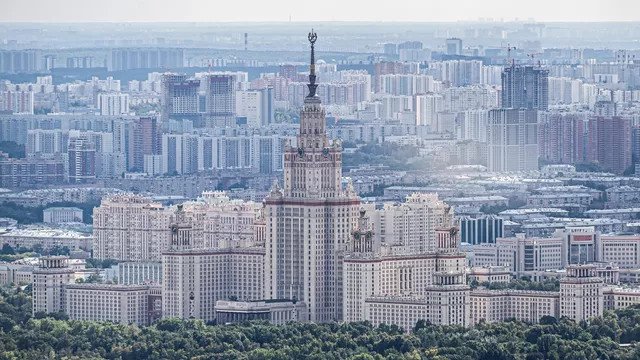
В МГУ разработали классификацию интернет-мемов
Исследователями Московского университета предложена классификация мемов, основанная на комбинации типов визуального и вербального компонентов
08.12.2023
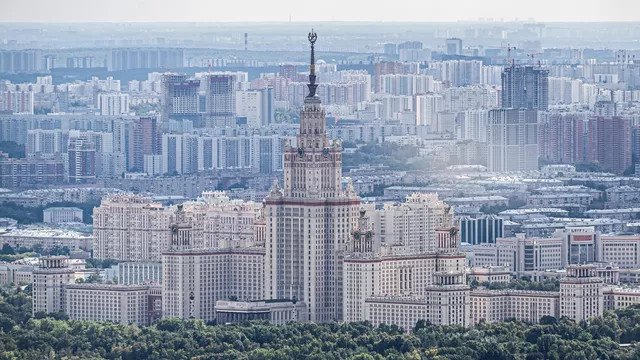
On the basis of the theory of congruent cultural universals and the thesis on divergent linguoculturemes, researchers of Moscow University have proposed a classification of memes based on a combination of types of visual and verbal components depending on the degree of their congruence (i.e., the ability to be recognized and correctly deciphered in different cultures), divergence (or cultural specificity) and lacunarity (i.e., the absence of a sign, concept, visual symbol, or concepts in one of the linguistic cultures).
The work was carried out within the framework of the Interdisciplinary Scientific and Educational School "Preservation of the World Cultural and Historical Heritage" with the financial support of the Moscow State University Development Program (project No. 23-Sh02-16). The results were published in the journal "Philological Sciences. Scientific Reports of Higher Education".
G.V. Denisova, O.V. Smirnova, O.V. Sapunova
...
The meme is analyzed as a polycode text from the standpoint of linguoculturology. Based on the theory of congruent cultural universals and the thesis of divergent linguoculturemes, the paper proposes a classification of memes based on a combination of types of visual and verbal components depending on the degree of their congruence, divergence or lacunarity. The classification is confirmed by an earlier study of the perception of Russian and Chinese Internet memes related to the COVID-19 pandemic by Russian and Chinese recipients. The conclusions made on the basis of the analysis of the material are that memes in which the visual component is congruent are most fully and easily perceived, while the verbal component is congruent, divergent or represented by a lacuna. On the contrary, models in which the visual component is divergent or lacunar and the visual component is incongruent cause major difficulties in the perception of speakers of foreign cultures."
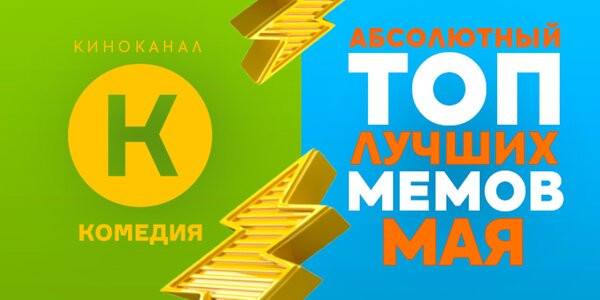
Чипирование рулит: теория заговора возглавила Российский рейтинг мемов мая
Киноканал «Комедия» представил топ главных мемов мая. В лидеры пробились популярные интернет-персонажи — качок Доге и плачущий Чимс. С их помощью сравнивают прошлое с сегодняшним днём, почти не вспоминая про ковид. Но возглавили рейтинг не пёсики, а чипы Билла Гейтса.
Chipping Rules: Conspiracy Theory Tops Russian Meme Rating in May
The coronavirus was almost not joked about
The Comedy Film Channel presented the top of the main memes of May. Popular Internet characters — the jock Doge and the crying Chims — made their way to the leaders. With their help, they compare the past with the present day, almost without remembering about covid. But it wasn't the dogs that topped the ranking, but Bill Gates' chips.
The May Memes rating is traditionally based on the results of monitoring social networks and publications in the media, a multifactorial analysis of trends and audience reactions, as well as on the assessments of a pool of experts who study the phenomenon of memes in the Russian Internet.
...
1. Bill Gates wants to chip humanity
In the first place of the rating are memes about Bill Gates, who allegedly wants to chip the population of the Earth. Fans of conspiracy theories believe that the founder of Microsoft, billionaire and philanthropist is behind the coronavirus pandemic. 5G cell towers are allegedly helping the infection spread, and Bill Gates plans to implant chips in billions of people under the guise of a vaccine. Those who came up with this conspiracy theory were "inspired" by Gates' TED Talk in 2015, when, speaking about the fight against Ebola, he said that humanity is not ready to face a new, global epidemic. .."
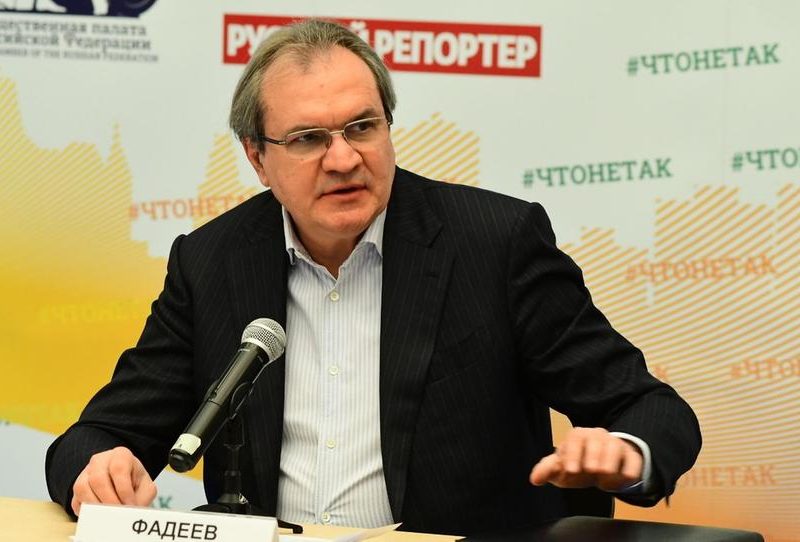
Чипирование россиян неизбежно: глава СПЧ утверждает, что Россия уже в шаге
Валерий Фадеев считает, что в своей запрещенной на телевидении программе "Бесогон" Никита Михалков все правильно говорил, и вживление микрочипов под видом вакцины вполне реально.

18.06.2020
Chipping of Russians is inevitable: the head of the Human Rights Council claims that Russia is already on the move Valery Fadeyev believes that Nikita Mikhalkov said everything correctly in his Besogon program, which is banned on television, and the implantation of microchips under the guise of a vaccine is quite real.
Today, all the talk about microchipping people should not be perceived as something unrealistic. Everything is quite realistic, it's just a matter of time and type (whether it's chips, medical bracelets or sensors).
This opinion is shared by the head of the Human Rights Council under the President of Russia (HRC) Valery Fadeev. He even supported the director Nikita Mikhalkov, who, one might say, suffered because he adheres to a conspiracy theory about the mass chipping of humanity. And he paid the price: his program "Besogon" was taken off the air on the TV channel.
"Remember Bill Gates' patent with three sixes? And so much noise. Nikita Mikhalkov spoke on this occasion. They attacked him: "Behold, he is an opponent of progress, the obscurantist Mikhalkov. Bill Gates says: There are a lot of sensors built into appliances around you. And now let's transmit these sensors to my system, which I will build in accordance with this patent," Sekret Firmy quotes Fadeev.
The head of the Human Rights Council says that chips are very much in demand, for example, to evaluate advertising for effectiveness. For example, during the demonstration of a commercial, the camera "monitors" the viewer's pupils and will note the reaction: narrowed, then the person reacted correctly. You can also install saliva sensors, like Pavlov's dog, so that advertisers know what exactly causes the greatest response from consumers. Chips will also be indispensable for political manipulation.
"If, in accordance with the algorithm, the system decides that you are doing the right thing, cryptocurrency is dripping into your account. I'm not making it up. The capitalists turned out to be more cunning," Fadeyev explained.
And at the same time, he warned Russians that the country is already one step away from chipping, drawing attention to Moscow's program for the development of artificial intelligence. Millions of sensors and cameras will be installed in the capital, which will have to record the actions of Moscow residents. He believes that there are legal risks for Russians, but it is still not worth preventing mass chipping. Digitalization will still invade social life, since technological progress is inevitable and it is impossible to stop it, the head of the Human Rights Council explained. There is no global conspiracy, but there are modern trends and demands, so you should not be hysterical, but just calmly discuss the risks and remove them, keeping in mind medical aspects and health risks.
Recall that the world began to talk about mass chipping under the guise of vaccination in early 2020. Then they remembered about Bill Gates that he warned about a new pandemic a few years ago. In addition, there is a story about a certain patent for implanting a microchip, registered by Microsoft. We did not forget to "add" a change in the business profile - to pharmaceutical products. And even close ties with the World Health Organization, of which Gates is a major donor, were also mentioned. As a result, a mixed "conspiracy" has emerged, the main idea of which is as follows: the coronavirus was artificially created by the terrible man Gates in order to drive billions of people into their homes so that they could be irradiated with 5G, and then microchipped, and that's it – control humanity as you want. However, Gates immediately replied that it would be foolish to refute this.
Political analyst Oleg Sergeyev shares Fadeyev's position, believing that the authorities do not hide their steps in this direction.
"It is absolutely true that the problem of microchipping is set forth both in the program for the development of artificial intelligence in Moscow and in the program "Childhood 2030", which provides for the creation of bio-robots from our children.
Ahead are social rating systems, for example, those that have been implemented in China, where everything is taken into account, starting with the analysis of your purchases, the time spent on the Internet, the number of hours in social networks and messengers. And as a result, for example, if you allow yourself to buy video games, the system will lower your social rating, and tomorrow you will already be infringed on your rights: you cannot get a job, get training, buy a plane or train ticket, buy a bottle of wine. As a result, what used to be a joke: "just nod to the TV" is becoming a reality," the expert commented to Bloknot.
Although there is still an amendment: no cryptocurrency will drip to a Russian, as the head of the Human Rights Council promised, on the contrary, if he behaves incorrectly, fines will drip, and this has already been clearly demonstrated by the Social Monitoring program, Sergeev sums up."
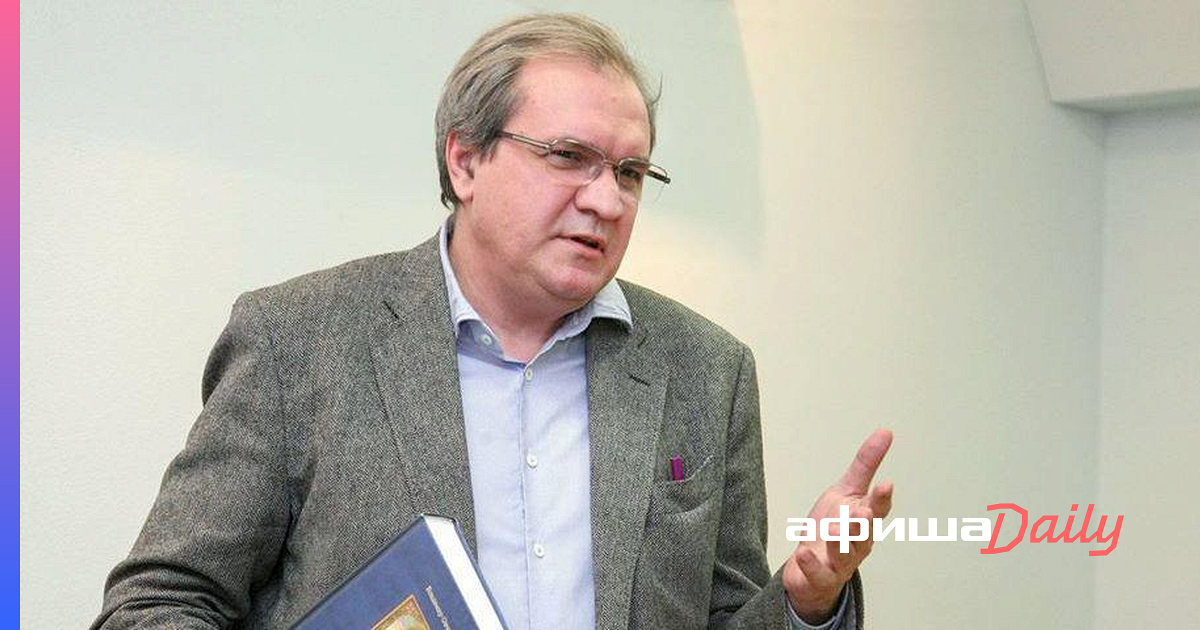
Глава СПЧ считает, что москвичей собираются чипировать, а Михалков прав
Глава Совета по правам человека при президенте России Валерий Фадеев заявил, что в московской программе развития искусственного интеллекта предполагается чипирование людей. Такую позицию он высказал в интервью радиостанции «Говорит Москва».
Валерий Фадеев
Что касается всех этих цифровых штучек, социальных мониторингов, цифровизации, слежки, распознавания лиц, этим занимаются технократы. Это люди, пусть они на меня не обижаются, но часть из них — аутисты. Я образно говорю, не в смысле болезни, а в смысле отношения к реальности.
HEAD OF THE PRESIDENTIAL COUNCIL FOR HUMAN RIGHTS VALERY FADEYEV IN THE "SMART GUYS" PROGRAM ON JUNE 16, 2020
...
V. Fadeyev: Evgenia, of course, we can rejoice, but this is where the risks lie. Because in so many areas of our activity, we are beginning to be recorded, our actions are beginning to be recorded, all our payments are being recorded. Now not only does the bank know our payments, but now the IRS knows our payments. There is talk of abolishing cash, then all payments will go through the state system, payments using cards. The information that will be accumulated in accordance with the law on the Unified Federal Information Register, there are dozens of indicators about us. Each of us will be assigned a digital number, as you know.
Moscow's system for the development of artificial intelligence assumes that millions of sensors, sensors, and cameras will surround us.
E. Volgina: Right.
V. Fadeyev: They will help us. Now there is such a scandalous topic of chipping. I would like to note that the Moscow Artificial Intelligence Development Programme provides for chipping.
E. Volgina: Could you remind us what kind of chipping is offered there?
V. Fadeyev: Literally, microchipping. Go to the website of the Moscow government and see the program for the development of artificial intelligence in Moscow.
E. Volgina: Well, no one is going to implant any chips.
V. Fadeyev: Yes, they will.
E. Volgina: Where?
V. Fadeyev: Evgeniya, into our body.
E. Volgina: Will they implant chips in our body?
V. Fadeyev: Of course. So that they transmit information about the state of health, pulse, I don't know, pressure, what else can be transmitted. Evgenia, why are you surprised? You'll go to the site and read.
E. Volgina: About microchipping. Ok.
Vyacheslav Fadeyev: Of course.
..."
Last edited:
Lalas
Star
- Joined
- Nov 8, 2022
- Messages
- 2,129
She is not. In the interview (from the YouTube video) she spoke together with the Minister of Health.I think what struck me most was that she's Deputy Minister of Health? Did I read that correctly?
Physician, Heal Thyself!
But it doesn't matter, because all the important people and organizations (including the Minister of Health and the Ministry) say the same. For example:
the cornerstone: "the nature–like technosphere is a part of the noosphere.."
St. Petersburg State Electrotechnical University "LETI" named after V.I.Ulyanov (Lenin) SPbGETU "LETI" https://prioritet2030.etu.ru/ MISSION AND STRATEGIC GOAL OF SPbSETU "LETI" within the framework of the PRIORITY 2030 program The mission of the University is to ensure the scientific and...
January 10, 2021
And they say that this is the inevitable future. And genetics, genome sequencing, genetic modifications, etc., are good for humanity and will be widespread. So...The Prime Minister of the Russian Federation Mikhail Mishustin approved the Program of fundamental scientific research for 2021-2030 with a funding volume of more than 2.1 trillion rubles. Genetic technologies prevail among medical areas, including the CRISPR/Cas9 genome editing method.
*At the same time, and especially persistently since March 2022, 90+% of the alternative press in the West (and outside Russia in general) has consistently and loudly spread the TRUTH that Russia is fighting Satanists from the deep state and their satanist plan. Calculate about what this is about...
Last edited:
Lalas
Star
- Joined
- Nov 8, 2022
- Messages
- 2,129

Ученые МГУ разработали инновационный мультисенсор для медицины
Группа ученых физического, химического факультетов и НИИЯФ МГУ представили мультисенсорную систему для детектирования специфичных биообъектов (антитела, аптамеры, олигонуклеотиды). Эта система представляет собой кремниевый транзистор с очень маленьким каналом (нанопроводом), реагирующий на...
MSU Scientists Develop Innovative Multisensor for Medicine
A group of scientists from the Faculties of Physics, Chemistry and the Institute of Nuclear Physics of Moscow State University presented a multisensor system for detecting specific biological objects (antibodies, aptamers, oligonucleotides). This system is a silicon transistor with a very small channel (nanowire) that responds to a change in electrical charge near it. Such a sensor has already demonstrated record sensitivity in detecting a certain type of protein. The device can be extremely useful in medicine in the field of quick and inexpensive diagnostics of various diseases. The results of the work were published in the highly-rated journal Biosensors 2023.
The research was carried out within the framework of the Interdisciplinary Scientific and Educational School of Moscow State University "Photonic and Quantum Technologies. Digital Medicine".
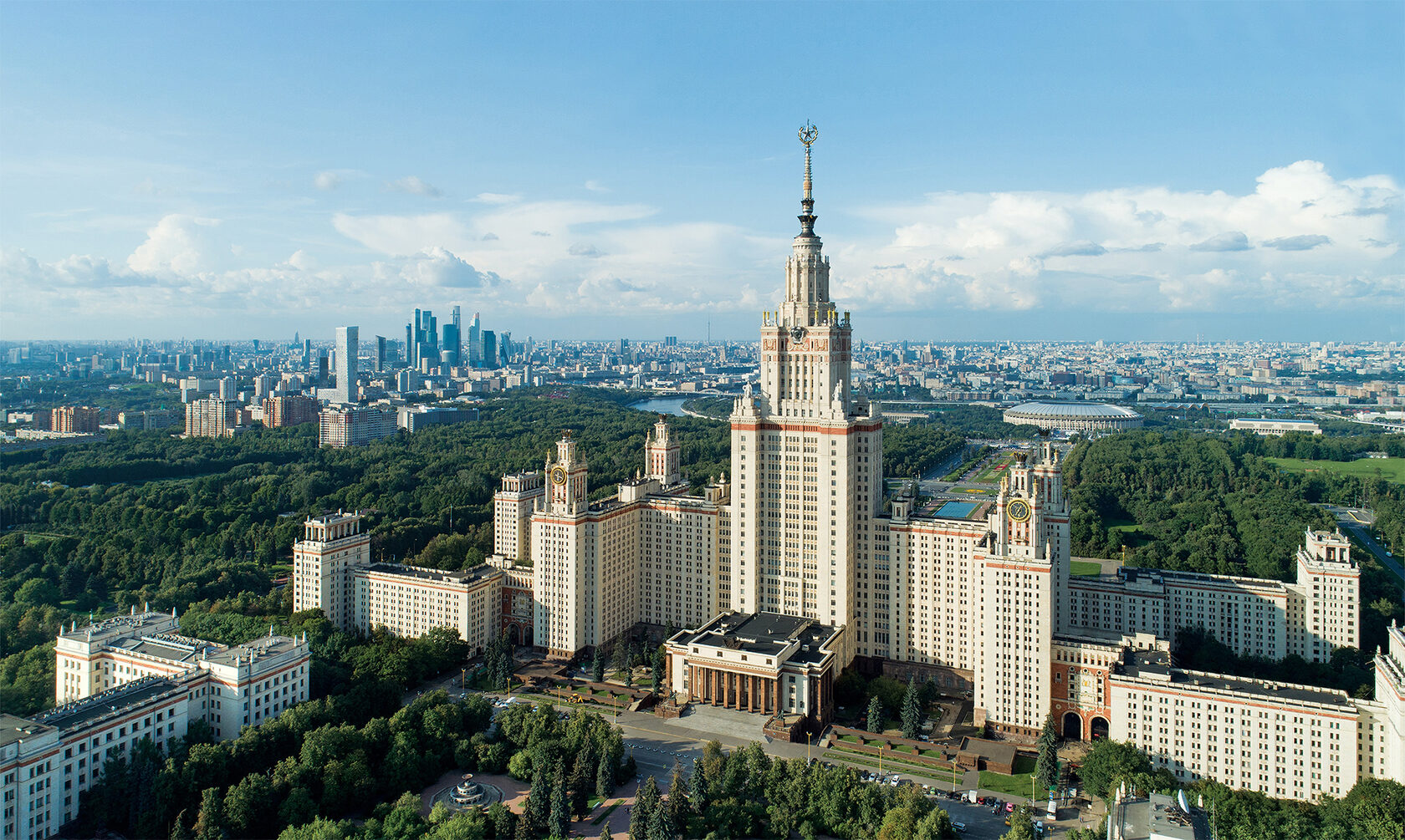
Фотонные и квантовые технологии
The transition to personalized medicine, high-tech healthcare and health-saving technologies requires the solution of many scientific problems, one of which is related to the real-time detection of low concentrations of specific biomarkers (proteins, viruses, nucleic acids, etc.) for the early diagnosis of diseases and pathologies.
For several years, scientists from the Faculty of Physics, the Faculty of Chemistry and the Institute of Nuclear Physics of Moscow State University have been working on the creation of a nanoscale multisensor system based on semiconductor nanostructures to study the fundamental principles of interaction of various biological objects with specific recognition elements (antibodies, aptamers, oligonucleotides). When studying the mechanisms of formation of specific antigen-antibody complexes or DNA duplexes on the surface of nanowires, silicon microchips and microchips based on membrane carriers, gold nanoparticles are actively used as labels with their visualization by electron and probe microscopy methods.
The sensitivity of the determination depends on the diameter of the nanoparticles, and the use of large nanoparticles may reduce the efficiency of complex formation due to steric factors. To increase the sensitivity of imaging methods, a method has been developed to increase the diameter of nanoparticles-labels after the formation of specific complexes. For this purpose, the reaction of gold reduction from a solution of hydrochloric acid using hydroxylamine using nanoparticles-tags as nuclei was optimized. Optimization of the pH of reagent solutions and the order of their addition made it possible to increase the size of nanoparticles by about 4 times, while also increasing the useful signal for colorimetric detection (signal-to-background ratio).
"Our work has shown that such a multisensor is very effective in highly sensitive detection of genes responsible for the development of bacterial resistance to antibiotics," said Maya Rubtsova, one of the authors of the article, a leading researcher at the Faculty of Chemistry. "In addition, the developed technique can be used in various methods of analytical biotechnology using gold nanoparticles as a label, as well as for visualizing nanoparticles on various surfaces using microscopy methods."
The results of the work were published in the highly-rated journal Biosensors 2023.


Improvement of Seed-Mediated Growth of Gold Nanoparticle Labels for DNA Membrane-Based Assays
Gold nanoparticles (AuNPs) are popular labels for colorimetric detection of various analytes, involving proteins, nucleic acids, viruses, and whole cells because of their outstanding optical properties, inertness, and modification variability. In this work, we present an improved approach for...
by Galina V. Presnova, Gleb A. Zhdanov, Luibov Yu. Filatova, Mariya M. Ulyashova, Denis E. Presnov and Maya Yu. Rubtsova
...
(This article belongs to the Special Issue Nanosensors for the Detection and Characterization of Food, Environmental and Medical Samples)

Special Issue Information
Dear Colleagues,
The development of rapid-response biosensing technologies utilizing nanotechnology has become more relevant for furthering our understanding of biological phenomena related to food, agriculture, environment, and medicine. As we understand the molecular mechanisms that underlie the emergence and spread of pathogens/toxins and their consequent impact on our agricultural and food systems, environment and ecosystems, as well as public health, and gain insight into the molecular mechanisms of life itself, it becomes clear that the technologies to investigate, intervene, and mitigate need to be correspondingly small (i.e., within the realm of nanotechnology).
In this Special Issue we will focus on research furthering our understanding of the interaction between nanoscale phenomena and various reagents so that better nano-based biosensing technology can be developed. We will report novel devices and applications using nano-based approaches that can detect various pathogens and/or toxins and chemical pollutants faster and more accurately, especially in the areas of food, environmental and medical samples. This Special Issue will also discuss specificity and sensitivity challenges that still face biosensors applications, and hurdles to be overcome for greater commercialization success of various biosensor technologies. Here, we would like to invite all researchers interested in these topics to join the discussion, and to disseminate their work and findings to the relevant scientific community to advance the welfare of human society. In light of the ongoing COVID-19 pandemic, progresses in biosensor technologies are more important than ever before.
Dr. Chenxu Yu
Dr. Mingqian Tan
Guest Editors
A special issue of Biosensors (ISSN 2079-6374). This special issue belongs to the section "Biosensor and Bioelectronic Devices".

Section Information
The Section "Biosensor and Bioelectronic Devices" represents an expanding disciplinary field that combines biosensors with various emerging technologies. This section’s scope includes but is not limited on the design, development, and application of biosensors (enzyme sensors, immunosensors, DNA/RNA sensors, etc.) and bioelectronic devices (electronic nose, electronic tongue, implantable electronics, etc.) in biological, medical, environmental, industrial, and related areas, with emphasis on matters of worldwide interest.
Special Issues
Following special issues within this section are currently open for submissions:
Biochips for Biosensing of Microphysiological Events (Deadline: 15 December 2023)
Emerging Trends and Applications in Nanobiosensors (Deadline: 15 December 2023)
Printed Electrochemical Biosensors (Deadline: 20 December 2023)
Application of Graphene-Based Sensors in Biomolecular Detection (Deadline: 20 December 2023)
Electrochemical Biosensors for Medical Diagnosis and Health Monitoring (Deadline: 20 December 2023)
Impedance-Spectroscopy-Based Biosensors (Deadline: 31 December 2023)
Current Challenges and Breakthroughs in Electrochemical Aptamer-Based Sensors (Deadline: 31 December 2023)
Artificial Skins for Healthcare Monitoring and Human-Machine Interaction (Deadline: 31 December 2023)
.....
Lalas
Star
- Joined
- Nov 8, 2022
- Messages
- 2,129
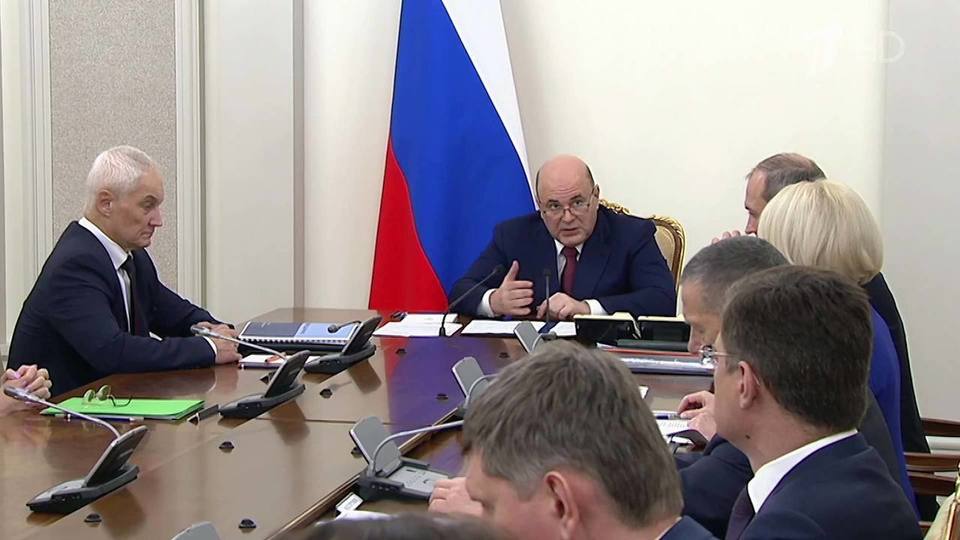
Для развития агропромышленного и рыбохозяйственного комплексов в России предоставят самые современные технологии. Новости. Первый канал
В России в следующем году создадут единую цифровую платформу со всеми данными по ситуации в этой сфере. Тему обсудил Михаил Мишустин на совещании с заместителями.
For the development of the agro-industrial and fishery complexes in Russia, the most modern technologies will be provided
Next year, Russia will create a single digital platform with all the data on the situation in this area. The topic was discussed by Mikhail Mishustin at a meeting with his deputies. According to him, the issue is extremely important for ensuring the country's food security. This means that the information base will have to rely on Russian software. In total, more than three billion rubles will be allocated for the digital transformation of the agro-industrial complex in 24.
And one more topic. The Cabinet of Ministers, by presidential decree, has prepared and approved a strategy for the development of the communications industry for the next 12 years.
Mikhail Mishustin, Prime Minister of the Russian Federation: "We are talking about people's access to high-quality communication services and data transmission, regardless of their place of residence. By the end of this decade, it is important to provide our households with the ability to connect to the Internet at a speed of at least 1 Gbps. 5G base stations should appear in all cities with a population of more than 100,000 people. Only domestic equipment will be used for this. The necessary funding for the implementation of the strategy will be taken into account in the preparation of the national project "Data Economy".
Dmitry Chernyshenko, Deputy Prime Minister of the Russian Federation: "The state orbital constellation of satellites in geostationary orbits will be updated, 19 spacecraft will be created and put into orbit. And, as a result, the level of technological sovereignty of the industry will increase significantly.For citizens, this is comfortable, safe and prompt communication anywhere in the country."
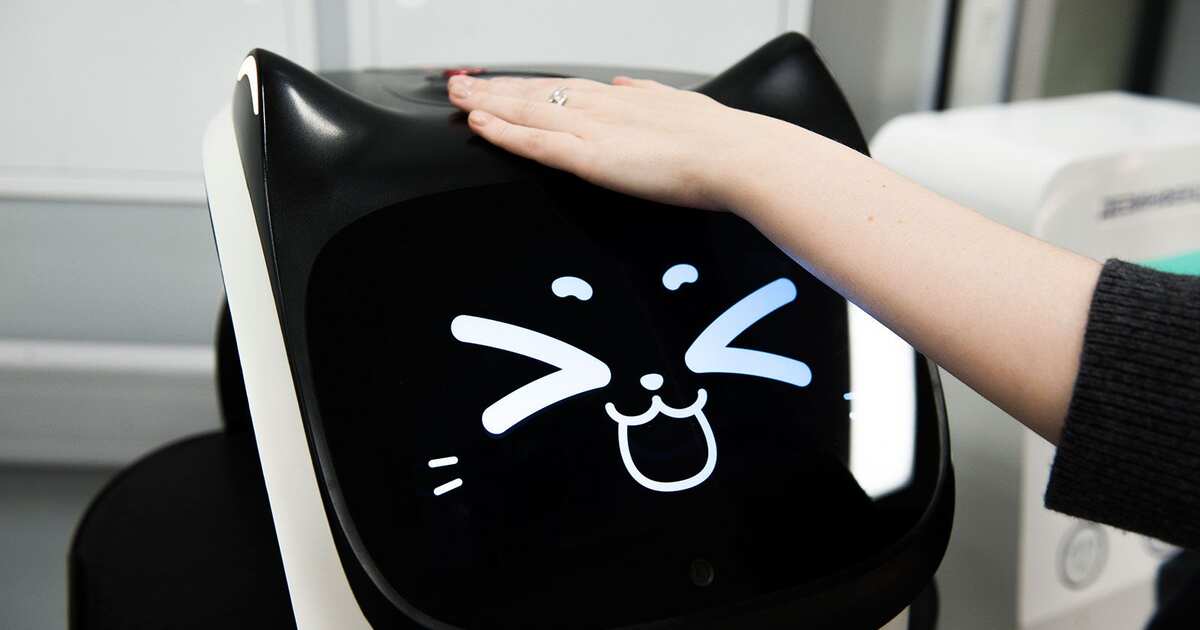
Кошки-роботы в больницах Москвы помогают пациентам и медикам
Интерактивные помощники работают уже в трех крупных больницах Москвы.

December 10, 2023
Robocats in Moscow Hospitals: How Devices Help Patients
Robocats Help Patients and Doctors in Moscow Hospitals
In the capital's hospitals, they began to take cats to work. We are talking about assistant robots in the form of a pet. Such extraordinary employees now not only meet patients, but also help medical workers. For example, they bring tests, medicines and food, as well as give health advice. What else is unique about robocats and whether they will be able to completely replace doctors in the future, REN TV correspondent Kristina Morozova found out.
Within these walls, the robocat Bellochka, as she is affectionately called in the Filatov hospital, feels at home. The resemblance to a real pet is not only in appearance. She loves affection, however, sometimes she shows character.
"Don't touch my head," the robocat said.
But for the most part, Bellochka is very docile and follows all the commands of the medical staff, and there are many of them in the emergency room.
"She can go to the small operating room if there is something urgent, necessary. If someone is in an isolation ward, a box, she can also send him lunch, some consumables in order not to involve medical staff," explained Natalia Nikolaeva, head nurse of the emergency department of the Filatov City Clinical Hospital.
The interactive assistant can deliver medicines, tests and food for days on a single charge.
The robot helps not only doctors, but also patients. For example, to navigate in space. From the laboratory diagnostics department, the robot led our correspondent to the computed tomography room
Also, the robocat will easily bring personal belongings on its own.
- What did the robot bring you?
"These are my clothes. A fur coat that I handed over to the wardrobe. Very convenient. What a wonderful robot – you don't need to go anywhere," the patient noted.
The robot does not interfere with the flow of ambulances and doctors. The cat, having studied the territory of the hospital, was programmed in such a way that, in fact, it exists on its own.
"Our robocat is equipped with cameras. Vertical cameras help her navigate in space. There are also cameras at the bottom that help the cat to stop or change the route if there are obstacles in front of it," explained Evgeny Purtov, a traumatologist-orthopedist of the emergency department of the Filatov City Clinical Hospital.
Such interactive assistants are already operating in three large hospitals in Moscow. This is a pilot project, but even now doctors who have managed to work with robots say that they would like to introduce them into their work even more.
"Everyone positively perceived her appearance. Everyone really likes the way the robocat talks, the way it shows its emotions. This evokes positive emotions in patients, which is important in such a place," said Roman Kuznetsov, head of the emergency department of the Sklifosovsky Research Institute of Emergency Medicine.
The robot can withstand up to 30 kilograms. Moreover, it can be used not only for medical purposes, but also, for example, in a café when there are a large number of visitors. The robot helps waiters and delivers orders to tables.
Cafes were the first to introduce automated assistants into the workflow.
"When there are no waiters to take the tables, when there are not enough waiters to take out all the dishes and, as a matter of fact, you load it. You can even send it to several tables safely," said the café worker.
Despite the fact that contactless delivery is difficult to surprise, a cat on wheels attracts attention.
Such robocats are "trained" in Ufa. And, although interactive assistants are produced in the Celestial Empire, on the territory of our country they function with domestic software. This, as well as the scope of application, will be expanded.
"Now we are planning a project with the national museum in Bashkortostan as a guide. Like cleaners, like promoters. The range of their application is quite wide," said Mikhail Reshetov, director of the robot maintenance company.
But scientists are in no hurry to say that robots will soon completely replace humans. On the contrary, the automation of some processes helps different industries to redirect human resources to more important work that artificial intelligence will not be able to do.

Госдума интегрировала цифровой рубль в налоговую систему РФ
Госдума приняла в третьем чтении закон, который прописывает в Налоговом кодексе (НК) положения, касающиеся взыскания налогов и в целом интеграции в фискальную систему цифрового рубля ЦБ.
08.12.2023
The State Duma adopted in the third reading a law that prescribes in the Tax Code (TC) provisions regarding the collection of taxes and, in general, the integration of the Central Bank's digital ruble into the fiscal system.
The bill (No. 384598-8) was submitted to parliament by deputies and senators in June.
The Tax Code introduces the concept of a "digital ruble account" - an account opened by the operator of the digital ruble platform (CB) on the basis of an agreement. The article on the collection of tax debts at the expense of cash prescribes the possibility of doing this at the expense of digital rubles on the accounts of a tax agent - an organization or an individual entrepreneur. Thus, funds from the digital ruble account are collected in the order of first priority along with funds in bank accounts.
The procedure for suspending transactions on digital accounts is prescribed, it is valid from the moment the bank, the operator of the digital ruble platform receives the decision of the tax authority to suspend such transactions.
As part of tax control, the operator of the digital ruble platform will be obliged to report to the tax authorities information about the opening or closing of a digital ruble account by both individuals and entrepreneurs.
Funds in digital ruble accounts are entered into the chapters of the Tax Code on the procedure for recognizing income and expenses of taxpayers.
The law will come into force on January 1, 2025."
Last edited:
Lalas
Star
- Joined
- Nov 8, 2022
- Messages
- 2,129

More about the recently popular and gaining popularity multipolar Russian robocats.
(Nobody watches any more videos with normal cats, everyone watches robocats.)
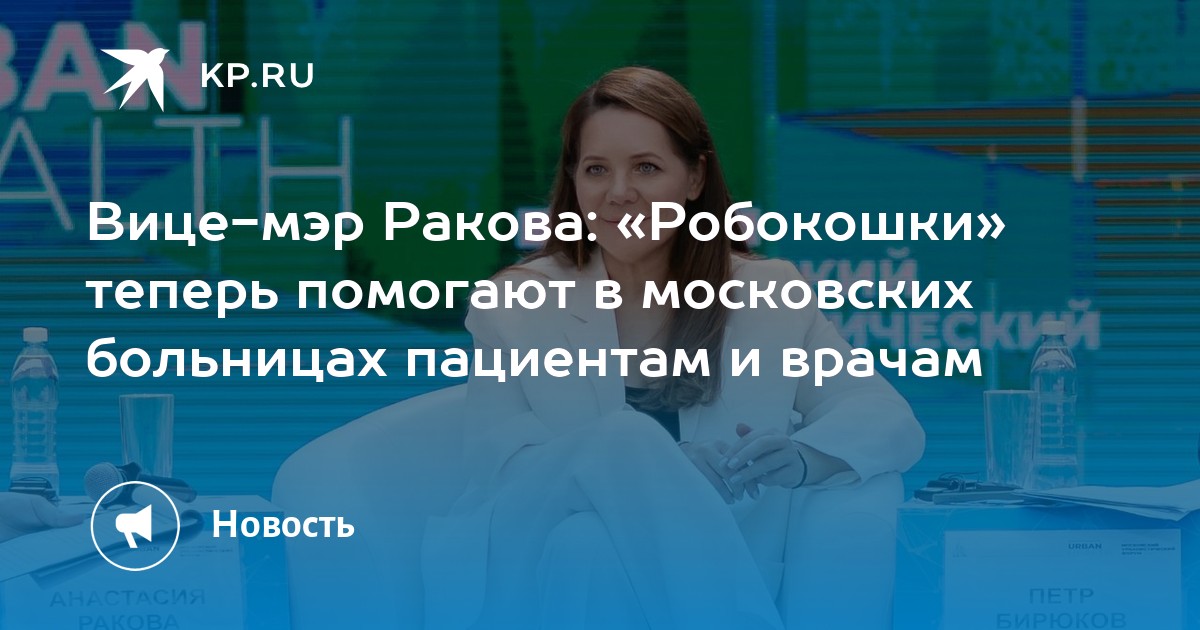
Вице-мэр Ракова: «Робокошки» теперь помогают в московских больницах пациентам и врачам
В столице продолжается цифровая трансформация здравоохранения
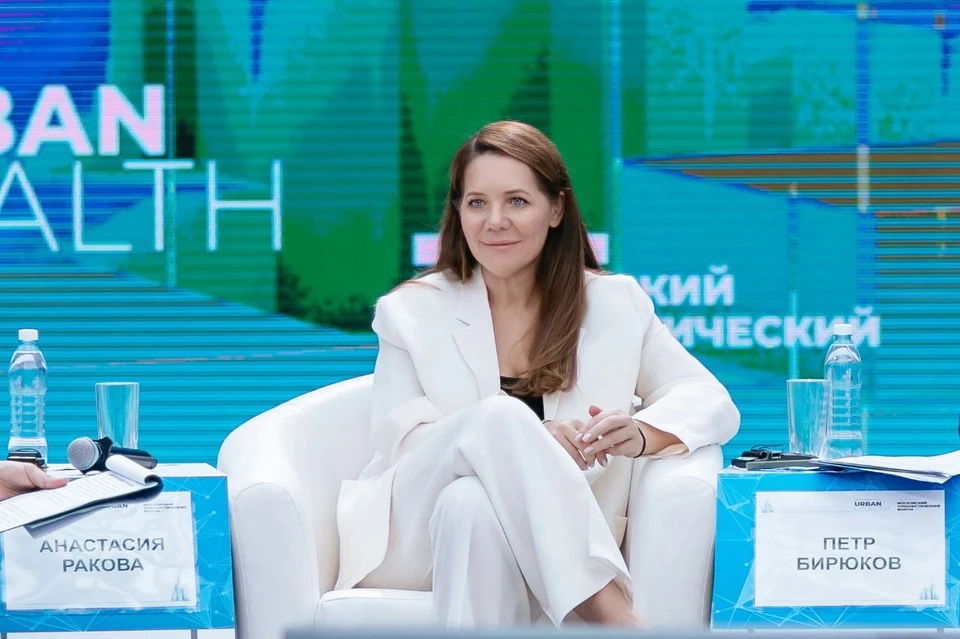
Anastasia Rakova
"Now, in test mode, in the City Clinical Hospital No. 67 named after L.A. Vorokhobov, the Research Institute of SP named after N.V. Sklifosovsky and the City Clinical Hospital No. 15 named after O.M. Filatov, "robot cats" began to help patients and doctors," Rakova said. - They know how to deliver food and medical supplies, accompany patients to the elevator and to the break room, for example, and share useful tips on maintaining their health along the way. Such robots relieve employees and help them focus on performing medical duties."
The Deputy Mayor recalled that the digital transformation of healthcare has been actively underway in Moscow for several years.
"What used to seem high-tech and futuristic has already become everyday life," Rakova said. "Polyclinics are abandoning paper documents, hospitals are becoming 'digital clinics', doctors and patients are being helped by digital services and artificial intelligence."
According to her, the capital's hospitals have been using robots for several years. Among them, for example, the most famous is DaVinci. An ongoing experiment confirms that robots can be more than just surgical.
Robocats are equipped with video cameras, 3D sensors, as well as a battery designed for daily continuous operation. Such assistants are safe and reliable. For example, in Hospital No. 67, the robot lives on the sixth floor, in the neonatal intensive care unit. He was instructed to deliver medical supplies, food for children, parenteral drugs from the treatment room to the wards, medicines and consumables to the operating rooms. And in the flagship center of the Sklifosovsky Research Institute, the "robocat" in the admission department takes the belongings of patients and visitors to the examination room.
If the pilot project is considered successful, it will be expanded to other Moscow hospitals."

According to the press service of the Moscow Department of Health:

Московская медицина
Эта робокошка не гуляет сама по себе — она живет в «триажной зоне» больниц «Робокошки» помогают в трех московских больницах пациентам и врачам. «Они умеют доставлять еду и медицинские принадлежности, провожать пациентов, например, до лифта и в комнату отдыха, а по пути делиться полезными...
A robot cat, like a real cat, loves to be petted and scratched behind the ear. And to turn it on, you need to touch the forehead, select the desired menu item on the display and click "Let's go!".
If the pilot project is successful, it will be expanded to other hospitals in the city. Meow "
comment:
@ User-cl3ge4xv2d
2 weeks ago
"People are being destroyed, robots are being worshipped... CYBORGS "EVOLVE"



Роботы официанты и доставщики от официального дистрибьютора PUDU в России
Роботы-официанты и доставщики предназначены для бесконтактного и безопасного обслуживания. Имеют большие лотки и закрытую конструкцию для максимальной защиты содержимого. Порадуйте покупателей впечатляющим опытом взаимодействия с Bellabot, Kettybot, Holabot.

"About the robot:
Economical, technical, cute, safe. The total load is 40 kg. Lifts 2 times more load than a person. Delivery speed is 0.5-1.2 m/s. Works 24/7. No sick leaves, weekends or holidays. One robot replaces up to 4 waiters. The bionic design and friendly appearance are conducive to communication and positive emotions.
Customers will be delighted!"
***

Meow
Last edited:
Lalas
Star
- Joined
- Nov 8, 2022
- Messages
- 2,129
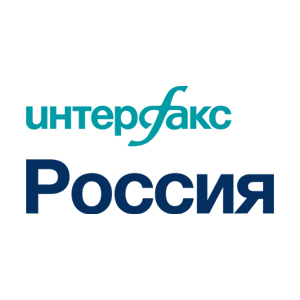
Цифровизация приводит к омолаживанию девиантного поведения у детей - специалист - Юг и Северный Кавказ || Интерфакс Россия
Ростов-на-Дону. 23 ноября. ИНТЕРФАКС-ЮГ - За последние несколько лет различные формы девиантного поведения и зависимостей ста... читать далее на "Интерфакс-Россия"
Digitalization leads to rejuvenation of deviant behavior in children - specialist
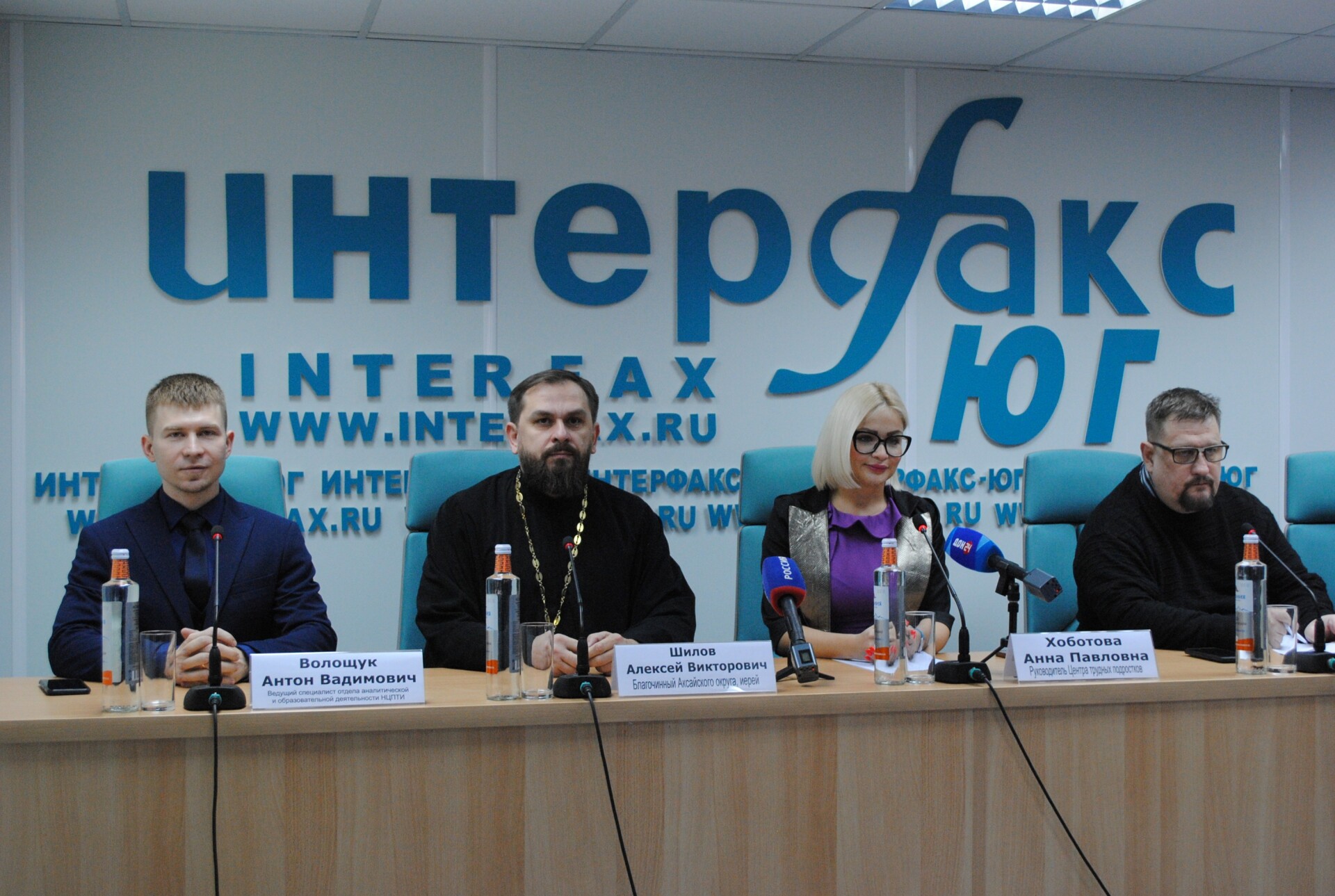
Rostov-on-Don. November 23. Over the past few years, various forms of deviant behavior and addictions have begun to manifest themselves in children aged 8 to 10 years, while previously they were characteristic of adolescents from 15 to 17 years old, Anna Khobotova, head of the Center for Troubled Teenagers, said at a press conference at the Rostov press center of Interfax on Thursday.
"Five years ago, when I started working with troubled teenagers, I was faced with the age of 15 to 17 years. These were mostly guys who suffered from alcohol addiction, vagrancy, theft, they had their first drug samples, and so on. Now parents of children aged 8-10 years often apply (...)," Khobotova said.
As the specialist explained, the rejuvenation of the problem of deviant behavior in children is influenced, among other things, by active digitalization and the development of technology.
"Gadgets today get to children from the age of two or three. (...) A child can view not only some educational content, but in general everything that is filled with both the Internet and social networks. Therefore, including the development of gadgets, digitalization leads to the fact that this problem is getting younger - but this is my personal subjective opinion," she added.
..."
clammertoe
Established
- Joined
- Nov 7, 2023
- Messages
- 492
Dump it over. Can it right itself? If not, is useless.
Lalas
Star
- Joined
- Nov 8, 2022
- Messages
- 2,129
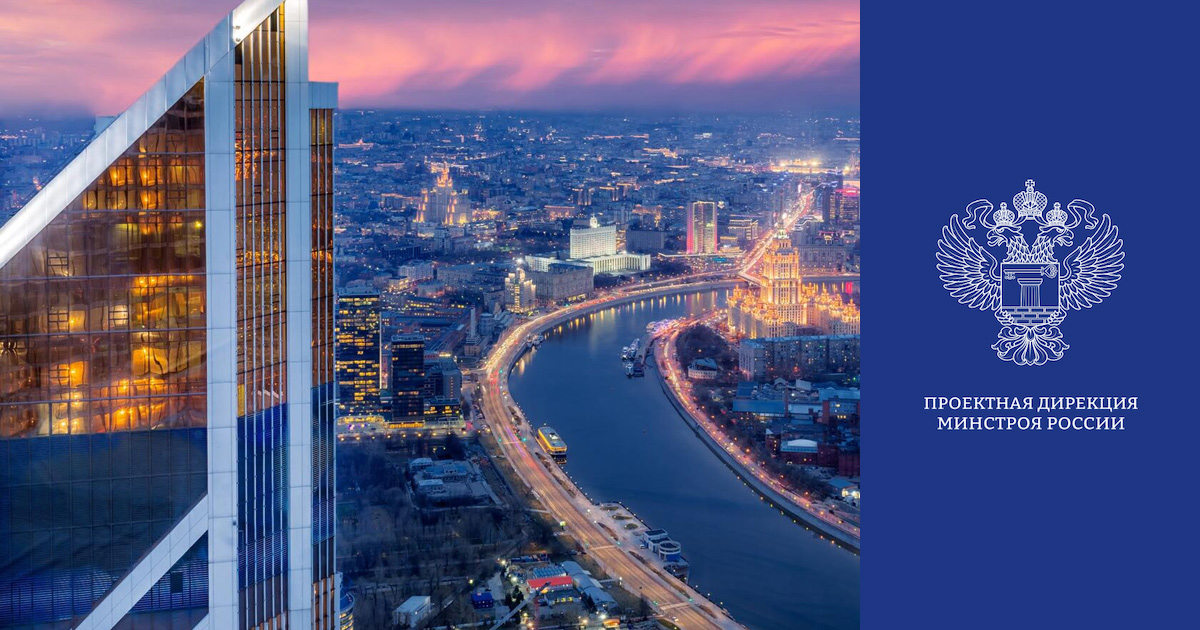
История Дирекции – ФАУ «ПД Минстроя России»
«Проектная дирекция Минстроя России» с 2022 года участвует в формировании федеральных программ Минстроя России, осуществляет аналитическую деятельность и выполняет отдельные дополнительные поручения Минстроя России.
Since 2019, the Directorate has been providing analytical, informational and methodological support for the implementation of federal projects that are part of the national projects "Housing and Urban Environment" and "Ecology" — "Housing", "Clean Water", "Improvement of the Volga", "Formation of a Comfortable Urban Environment", as well as the departmental project "Smart City".
...
Departmental project "Smart City"
As part of the Smart City project, a key document, the Smart City Project Standard, was updated in 2022.
The purpose of the new Standard is to synchronize with the key tasks of national projects in 18 areas. In particular, the inclusion of blocks on activities in the social sphere, culture, education, entrepreneurship, and geoinformation technologies was ensured.
For the first time, the All-Russian Youth Forum "Smart City: Our Future – New Faces" and the All-Russian Games "Smart City. Live the sport."
For the third time, the All-Russian Forum on the Development and Digital Transformation of Cities "Smart City: New Challenges" was organized.
The Smart City nomination was administered as part of the Best Municipal Practice Competition aimed at supporting digital transformation projects and the introduction of digital technologies, including in small towns.
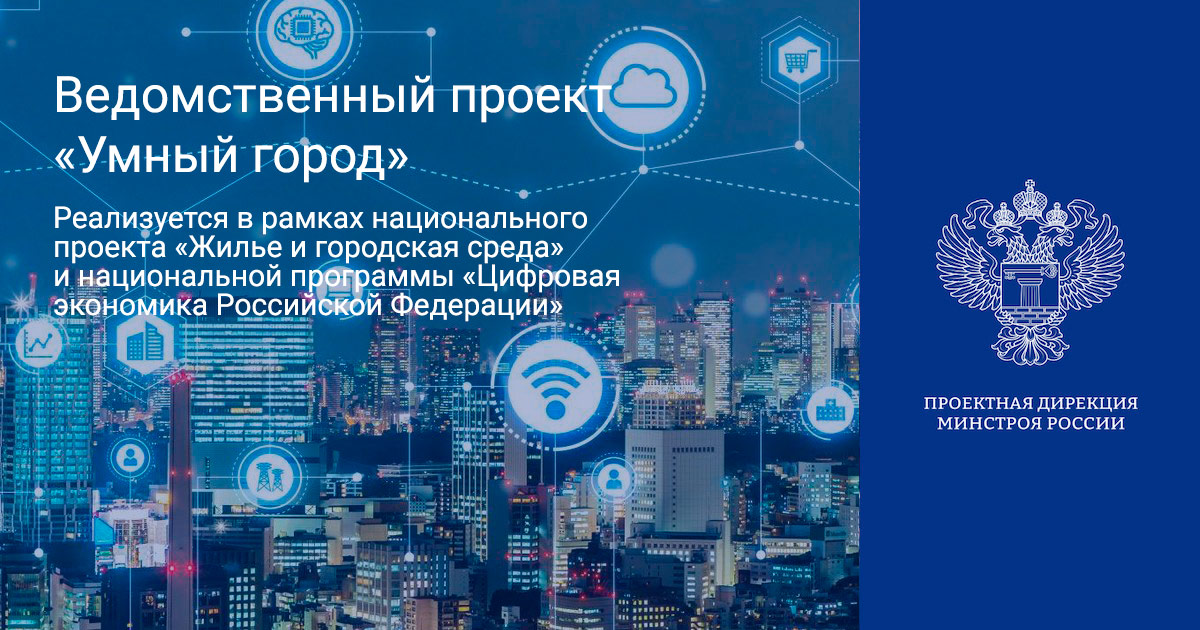
Ведомственный проект «Умный город» – ФАУ «ПД Минстроя России»
«Умный город»— ведомственный проект Минстроя России по цифровизации городского хозяйства. Реализуется в рамках национального проекта «Жилье и городская среда» и национальной программы «Цифровая экономика Российской Федерации».
The Smart City project is aimed at increasing the competitiveness of Russian cities, creating an effective urban management system, and creating safe and comfortable living conditions for citizens.
Key principles of the Smart City project
Human-centered
Maintaining a balance of interests, principles, development and opportunities
Integrated, collaborative and open
Creating a sustainable and safe urban environment
Availability and convenience of services
Continuous improvement of the quality of management
The primacy of long-term solutions over short-term benefits
Focus on cost-effectiveness
Application of the best available technologies
A smart city is an approach to the development of a city that uses digital tools to improve the standard of living, the quality of services and the efficiency of management, while necessarily meeting the needs of present and future generations in all relevant areas of life.
The Smart City project involves 213 cities, including cities with a population of over 100,000 people, administrative centers of the constituent entities of the Russian Federation, and pilot cities that have signed agreements with the Ministry of Construction of the Russian Federation.
Since 2018, the Urban IQ Efficiency Index has been calculated annually. In accordance with the goals and indicators of the passport of the departmental project for the digitalization of the urban economy "Smart City" by 2024, the average value of the "IQ of cities" index should be increased by 30%."
Novosti/News
07.12.2023
SMART CITY

The digital platform for managing the municipal economy of the Novotalitsky rural settlement of the Ivanovo Region based on artificial intelligence technologies became the winner in the category "Modernization of the Urban Economy through the Introduction of Digital Technologies and Platform Solutions" ("Smart City") of the Best Municipal Practice competition. The project was announced in the second category of settlements - rural settlements.
"The electronic services of the digital platform are adapted to the specific problems of a rural settlement located on a long border with a large city – the regional center of the city of Ivanovo. Municipal practice has great potential for scalability and replication of results, which meets the criteria of the departmental Smart City project," said Daria Dolgikh, Deputy Director of the Project Directorate of the Ministry of Construction of Russia, the agency that accompanies the implementation of the departmental project for the digitalization of the urban economy "Smart City".
Municipal practice has been implemented with the wide involvement of sources of extra-budgetary funding: this is an educational grant, support for the technological association for artificial intelligence, and payment of patent costs by business representatives.
The introduction of the technological platform has improved the quality of urban resource management, while decisions on prioritizing the execution of applications have become objective. In addition, the reception of applications for burial and improvement of burial sites and the interaction between the applicant and the administration have been automated. The platform also has a service for catching stray dogs.
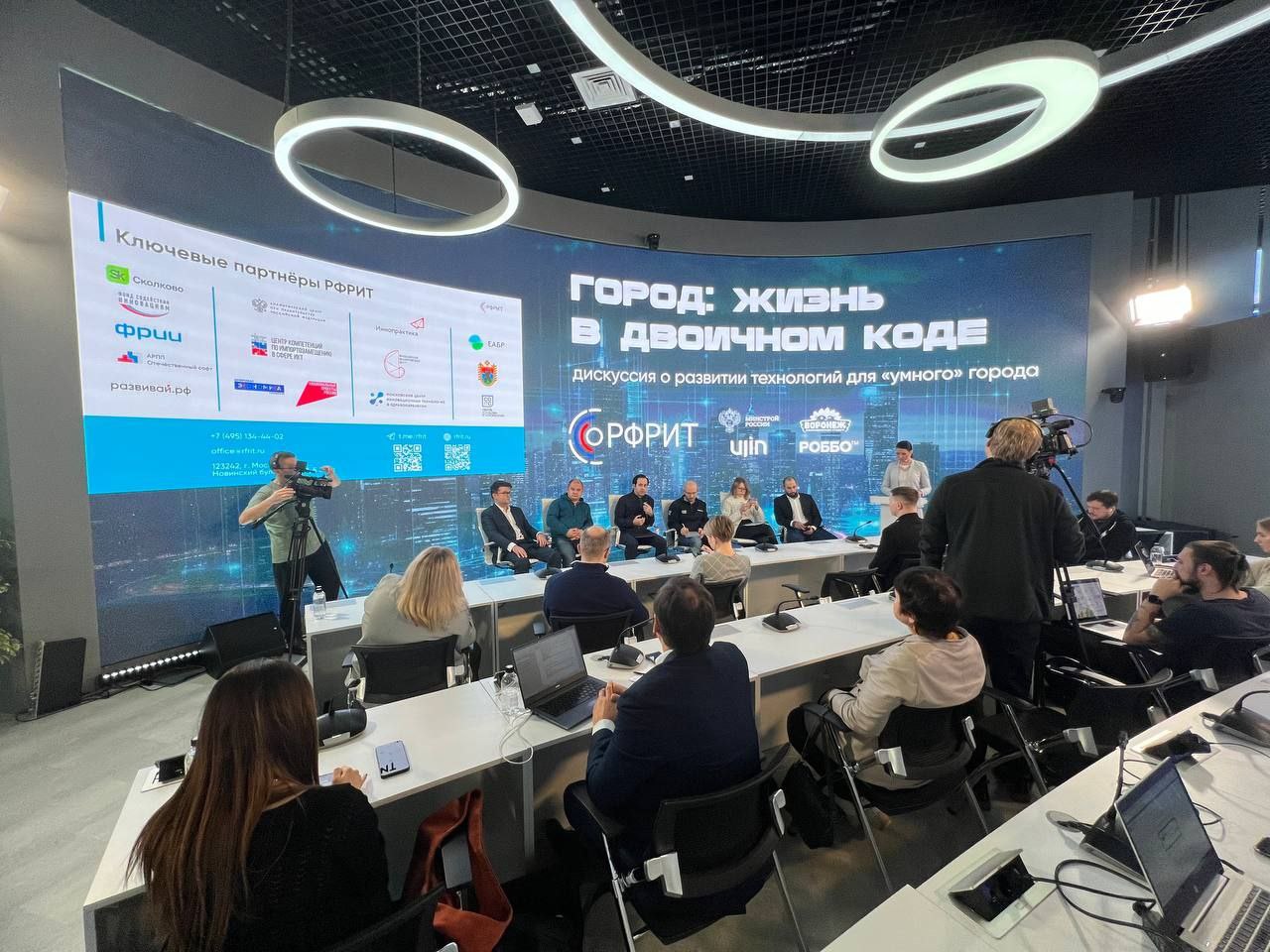
На выставке «Россия» обсудили развитие «умных городов»
04.12.2023
SMART CITY
On 1 December, the pavilion of the Government Coordination Centre at VDNH presented projects aimed at import substitution and the development of new technologies for urban infrastructure. During the discussion "City: Life in Binary Code", representatives of Russian companies shared their experience in implementing projects, told how life in cities has changed thanks to domestic IT solutions, and discussed further directions for the development of technologies for a "smart city".
According to Konstantin Mikhailik, Deputy Minister of Construction, Housing and Utilities of the Russian Federation, the life of any resident of the city becomes easier with the introduction of modern technologies.
"The whole concept of a "smart city" is based on the fact that if a city has a digital infrastructure, then the task of the Ministry of Construction is to determine the platform on which digital solutions can be assembled, create a service and bring it to the end consumer. As a result, we get a qualitative change in people's lives," said Konstantin Mikhailik.
Alexander Pavlov, General Director of the Russian Foundation for the Development of Information Technologies (RFRIT), recalled that to date, as part of the implementation of the Government's instructions, the Fund has supported 20 particularly significant projects for a total amount of grant funding of about 17 billion rubles.
"RFRIT is actively involved in the development of smart cities and has already supported a number of digital solutions in the field of construction, housing and communal services, transport, healthcare, including particularly significant ones. All of them help to make our lives easier and more interesting. For example, with the help of the Ujin platform of the Unicorn company, it is possible to control a "smart" home, the ROBBO company helps to master robotics, the most modern animation technologies are used in the work of the Voronezh studio. All these developments can be used not only in their industry. The created solutions will make it possible to further develop educational, medical and many other technologies based on Russian IT solutions," Alexander Pavlov emphasized.
In turn, Daria Dolgikh, Deputy Director of the Project Directorate of the Ministry of Construction of Russia in the direction of "Smart City", recalled that the project has been implemented for five years and unites more than 200 cities.
"This is the only project that is initially focused on people in all its variety of services. It is construction, housing and communal services and the municipal economy that unite the largest number of citizens' requests. The concept of a "smart city" does not end with the construction of a building and its operation. We, as consumers, being in a "smart city", are interested in "smart education" and in the development of other spheres of life," Daria Dolgikh emphasized.
Alexander Kolychev, Ujin Product Director at Unicorn, said that their operating system is present in most of Russia, and about 30% of all real estate under construction in the country is sold with the participation of Ujin products.
"In the development of our product, the grant support of the RFRIT helped. The line of the Ujin operating system is gradually expanding, and now we work in such market segments as communal service systems, individual systems and smart apartments, business and social and cultural facilities," said Alexander Kolychev. "Our development allows us to digitize the housing and utilities sector, which makes it possible to scale the service to facilities for various purposes."
The 3D platform of the Voronezh Animation Studio, developed with the grant support of the RFRIT, organically fits into the development of the "smart city" system. It allows you to make a high-quality visualization of any object, even an entire city. According to Vladimir Nikolaev, the studio's general producer, one of the trends of "smart cities" today is the creation of their digital twins. With their help, you can solve such problems as counting car traffic on city streets, lack of street lighting.
Marat Karatov, Director of ROBBO for State Projects, stressed that today there is an acute shortage of innovative engineers in the field of IT in the labor market. With the support of RFRIT, ROBBO helps to teach schoolchildren modern technologies.
At the end of the discussion, Alexander Pavlov said that according to the country's budget for 2024 approved by the President of Russia, the RFRIT will receive more than 7 billion rubles to finance projects for the development and implementation of domestic IT solutions. And Konstantin Mikhailik added that among these projects are developments in the fields of construction, housing and communal services and "smart city".
In December, all visitors to the Rossiya exhibition will be able to get acquainted with the projects presented during the discussion in detail in the pavilion of the State Corporation VEB.RF at VDNH.
01.12.2023
SMART CITY
An internship from Petrovsky Rural Settlement of the Priozersky Municipal District of the Leningrad Region called "Digital Passport of the Territory" took second place in the category "Modernization of the Urban Economy through the Introduction of Digital Technologies and Platform Solutions" ("Smart City") of the "Best Municipal Practice" competition. The project was announced in the second category of settlements - rural settlements. In total, 50 prizes in five nominations have been determined this year.
"The digital passport of the territory provides an opportunity to regularly monitor the condition of facilities and their maintenance. This tool meets the criteria of the Smart City project and allows you to quickly identify emerging problems and malfunctions and take timely measures to eliminate them. Monitoring also contributes to the optimal allocation of resources and the planning of preventive maintenance. And a single data warehouse provides centralized management, where all data is available to parties responsible for the maintenance of territories, including local governments and executive bodies," said Daria Dolgikh, Deputy Director of the Project Directorate of the Ministry of Construction of Russia, the agency that accompanies the implementation of the departmental project for the digitalization of the urban economy "Smart City".
...
The project from Novosibirsk took first place in the nomination "Modernization of the Urban Economy through the Introduction of Digital Technologies and Platform Solutions (Smart City)", which is supervised by the Ministry of Construction of Russia, of the All-Russian competition "Best Municipal Practice" in 2023. In total, 50 prizes in five nominations have been determined this year.

...
The introduction of the geoinformation portal as a single platform made it possible to work with data on a platform basis, to integrate data arrays from different sources on a single resource. In addition, it became possible to organize operational intersectoral interaction of the city's services and departments to make management and project decisions in order to improve the overall quality of life in the municipality.
...
"My Novosibirsk" includes the following modules: Life Support System Shutdowns, My House, Housing and Utilities Programs, Construction, Landscaping and Public Areas, Education and Science, Healthcare, Voter Mandates, Non-Stationary Trade Facilities, City Fairs, Scheme of Advertising Structures, Cemeteries of Novosibirsk.
It should be noted that further development of the geoinformation portal is planned. Through the use of platform solutions, the development of the portal will cover almost all sectors of the city, and the introduction of additional digital tools opens up the possibility of creating a solid foundation for the digital transformation of urban management.
28.11.2023
SMART CITY
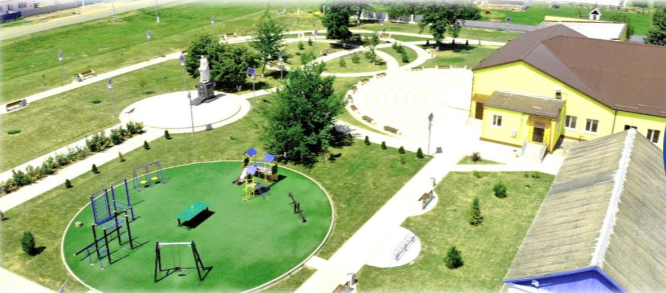
In the Western Rural Settlement of the Leningradsky District of the Krasnodar Territory, a project was implemented to introduce smart technologies, which took 3rd place in the Best Municipal Practice competition in the second category of settlements (rural settlements). In total, 50 prizes in five nominations have been determined this year.
"The project for the introduction of innovative technologies for energy efficiency management, ensuring safety and improving the standard of living of the population, successfully implemented in the Western Rural Settlement of the Krasnodar Territory, became the third in the "Smart City" category of the "Best Municipal Practice" competition. As part of the project, through the introduction of digital technologies and platform solutions, 6 areas of the municipal economy were modernized, including urban management, smart housing and communal services, innovations for the urban environment, intelligent public safety systems, intelligent environmental safety systems and communication network infrastructure," said Daria Dolgikh, Deputy Director of the Project Directorate of the Ministry of Construction of Russia, the agency supporting the implementation of the departmental digitalization project Smart City.
Thanks to the integrated approach of the project, safe and comfortable living conditions are created for the residents of the settlement, the quality of resource management is improved with an emphasis on economic efficiency.
One of the innovations for the urban environment was the introduction of a free Wi-Fi access zone, as a result of which the number of Internet users among teenagers and young people in rural settlements in public places receiving information and educational services has increased.
The project from Sarov took the 2nd place in the competition "Best Municipal Practice"
21.11.2023
SMART CITY
The results of the 2023 Best Municipal Practice All-Russian Competition have been announced. In total, this year 50 prizes were awarded in five categories, including the nomination "Modernization of the Urban Economy through the Introduction of Digital Technologies and Platform Solutions (Smart City)", which is supervised by the Ministry of Construction of Russia.
"The second place in the Smart City category of the Best Municipal Practice competition was taken by a project from the city of Sarov, Nizhny Novgorod Region, i.e. the introduction of a video surveillance system and its integration into the Smart Sarov information platform. The opportunities that the platform opens up thanks to the implementation of the Video Analytics module in the complex will create conditions for improving the safety of the residents of the city of Sarov," said Dina Safiullina, Head of the Project Directorate of the Ministry of Construction of Russia.
"Smart Sarov" is a platform where you can monitor the city's life processes online. The service combined the existing information systems in the city in a "one-stop-shop" format, thus increasing the efficiency of interaction between the population and the authorities. On the umnysarov.rf portal, residents of the city can leave a message about an urgent problem, monitor the movement of public transport, find the contacts of the deputy in their district, as well as solve other problems.
The implementation of a video surveillance system with the Video Analytics module allows you to recognize faces online, view images from cameras in real time, automatically count the number of visitors to public buildings, search for faces in the archive (offline), and download archived data from the database.
It should be noted that the video surveillance system is a completely Russian product that takes into account the requirements for information security and import substitution.

17.11.2023
SMART CITY
In St. Petersburg, within the framework of the V International Municipal Forum BRICS+ "At the Junction of the Past and the Future: Global Transformation", the session "Smart City - Smart Country" was held, organized by the FAI "Project Directorate of the Ministry of Construction of Russia".
The discussion was devoted to the departmental project "Smart City" of the Ministry of Construction, Housing and Utilities of the Russian Federation, which has been implemented since 2018 as part of the national project "Housing and Urban Environment" and the national program "Digital Economy of the Russian Federation". The list of basic and additional indicators of the digitalization of the urban economy – the Smart City Standard is regulated by the Order of the Ministry of Construction of the Russian Federation dated September 28, 2023 No. 696/pr. In the selection of practices, preference is given to solutions based on the use of domestic components and components. At the moment, there are 73 projects in the solution bank of the Smart City project.
According to Daria Dolgikh, Deputy Director of the Project Directorate of the Ministry of Construction of the Russian Federation, who moderated the session, the Smart City connects a huge number of areas, including conservative areas: "Issues of housing and communal services, infrastructure, operation of buildings, and the energy fund are among the most difficult areas due to the presence of a large economic fund that requires digitization and restructuring of work. At the same time, they remain the most relevant and in demand, since they relate to the daily life of a person."
"A huge number of information systems necessitates coordination in data collection. For us, a smart city is a resource for improving the quality of comfortable living and a resource for making management decisions based on the built system for managing the urban economy," said Dmitry Razumovsky, Deputy Governor of the Kaluga Region. He also spoke about the implementation of the Smart City project in the Kaluga Region, examples of implemented practices and the effects of their implementation: a geoinformation portal, real estate accounting, a regional navigation and information system, an air monitoring system, the City Monitoring platform, a regional medical information system, a unified registry of the Kaluga Region, and the Catharsis. Social Protection, Business Development Agency Portal, Kaluga Region Tourism Portal, etc.
Vadim Karetnikov, Director of the Agency for the Development of Communal Infrastructure of the Moscow Region, shared the experience of the Moscow Region in implementing digital platforms for managing the utility and energy infrastructure of the Moscow Region, and also spoke about the tasks for 2024, taking into account the scaling of work with data.
"Digitalization is not an end in itself for us, it primarily implies the digitalization of the services provided, then the digitalization of industry management, and thirdly, the digitalization of the industry itself. In the Moscow Region, the Dobrodel system has been created, in which more than 4 million applications have been processed. In the past, the media was often the most prompt feedback. In order to reduce the number of calls for housing and communal services, we have created a portal "Map of Utilities", where all apartment buildings are available and residents are aware of planned shutdowns of heating and hot water. Thus, calls to management companies, resource workers and the Administration are minimized," Vadim Karetnikov emphasized.
Olga Guy, Project Manager of the Analytical Center of the Moscow Urban Forum, shared her vision:
"When creating any digital ecosystem, it is important to remember that it should be as seamless as possible for the consumer, expanding spatial, temporal, and industry boundaries. City residents are already accustomed to the fact that they can receive a large number of services without leaving their homes and, if necessary, communicate with the capital's authorities from anywhere in Russia. Based on Moscow's experience as a leader in technological development, other territories can make significant progress in designing their digital transformation."
Philip Bykov, Deputy General Director of the RFRIT, spoke about measures to support domestic developers.
"RFRIT is actively involved in the implementation of the Smart City project and has already supported a number of digital solutions in the field of construction, housing and communal services, transport, and healthcare. Such IT projects have a high export potential and can receive support for promotion in foreign markets through the Digital Attaché service. Within the framework of this program, two "digital attachés" have already taken up their duties in South Africa and China, and we hope that next year the "digital attachés" will begin work in all BRICS countries," said Philip Bykov, Deputy Director General of the RITF.
At the end of the discussion, the speakers exchanged views on the promising areas of the Smart City and answered questions from the audience."
.......
Last edited:




